Array
(
[SERVER_SOFTWARE] => nginx
[REQUEST_URI] => /engage-with-us/student-engagement/student-funding-internship/cohort-2023/
[USER] => fpm200111
[HOME] => /home/fpm200111
[WPENGINE_ACCOUNT] => harvardhealth
[WPENGINE_PHPSESSIONS] => on
[WPENGINE_DB_SESSIONS] => off
[HTTP_RAWHOST] => globalhealth.harvard.edu
[HTTP_X_WPENGINE_PHP_VERSION] => 8.2
[REMOTE_ADDR] => 216.73.216.55
[SCRIPT_FILENAME] => /nas/content/live/harvardhealth/index.php
[SERVER_PORT] => 80
[REMOTE_PORT] =>
[HTTP_REFERER] => https://globalhealth.harvard.edu/?p=6765
[HTTP_CF_VISITOR] => {\"scheme\":\"https\"}
[HTTP_X_FORWARDED_HOST] => globalhealth.harvard.edu
[SERVER_NAME] => globalhealth.harvard.edu
[REQUEST_METHOD] => GET
[HTTP_USER_AGENT] => Mozilla/5.0 AppleWebKit/537.36 (KHTML, like Gecko; compatible; ClaudeBot/1.0; +claudebot@anthropic.com)
[DOCUMENT_ROOT] => /nas/content/live/harvardhealth
[REQUEST_SCHEME] => http
[IS_WPE] => 1
[HTTPS] => on
[HTTP_CF_CONNECTING_IP] => 216.73.216.55, 216.73.216.55, 216.73.216.55
[HTTP_VIA] => 1.1 pod-403756 (Varnish/7.7)
[SERVER_PROTOCOL] => HTTP/1.1
[DOCUMENT_URI] => /index.php
[PATH_TRANSLATED] => /nas/content/live/harvardhealth/index.php
[PATH_INFO] =>
[SCRIPT_NAME] => /index.php
[QUERY_STRING] =>
[HTTP_X_WPE_SSL] => 1
[HTTP_X_WPE_INSTALL_NAME] => harvardhealth
[HTTP_ACCEPT_ENCODING] => gzip
[HTTP_X_FORWARDED_PROTO] => https
[HTTP_CF_IPCOUNTRY] => US
[HTTP_HOST] => globalhealth.harvard.edu
[PHP_VALUE] => upload_max_filesize=50M;
post_max_size=100M;
[HTTP_X_IS_BOT] => 1
[HTTP_X_WPE_LOCAL_SSL] => 1
[HTTP_ACCEPT] => */*
[HTTP_X_WPE_EDGE] => AN
[CONTENT_LENGTH] => 0
[CONTENT_TYPE] =>
[REDIRECT_STATUS] => 200
[SERVER_ADDR] => 127.0.0.1
[HTTP_X_REAL_IP_REMOTE] => 104.23.243.149
[HTTP_X_WORDPRESS_TYPE] => DEFAULT
[HTTP_X_UA_ORIGINAL] => Mozilla/5.0 AppleWebKit/537.36 (KHTML, like Gecko; compatible; ClaudeBot/1.0; +claudebot@anthropic.com)
[HTTP_CDN_LOOP] => cloudflare; loops=1
[HTTP_X_CACHE_GROUP] => normal
[SYSLOG_IDENT] => phperr-harvardhealth
[PHP_ADMIN_VALUE] => newrelic.appname=harvardhealth;
newrelic.browser_monitoring.auto_instrument=off;
newrelic.enabled=off;
newrelic.license=;
sendmail_path=/bin/sendmail-wrapper.sh 79e309318abe46fb70c4b52b782c479d04ddf08b /usr/sbin/sendmail -t -i;
syslog.ident=phperr-harvardhealth;
[GATEWAY_INTERFACE] => CGI/1.1
[HTTP_WPE_READONLY] => on
[HTTP_X_WPE_REQUEST_ID] => d6610205f1613b3c15c2e330b339c6f3
[HTTP_CF_RAY] => 9bdded41ce0a8020-CMH
[FCGI_ROLE] => RESPONDER
[PHP_SELF] => /index.php
[REQUEST_TIME_FLOAT] => 1768402027.84
[REQUEST_TIME] => 1768402027
)
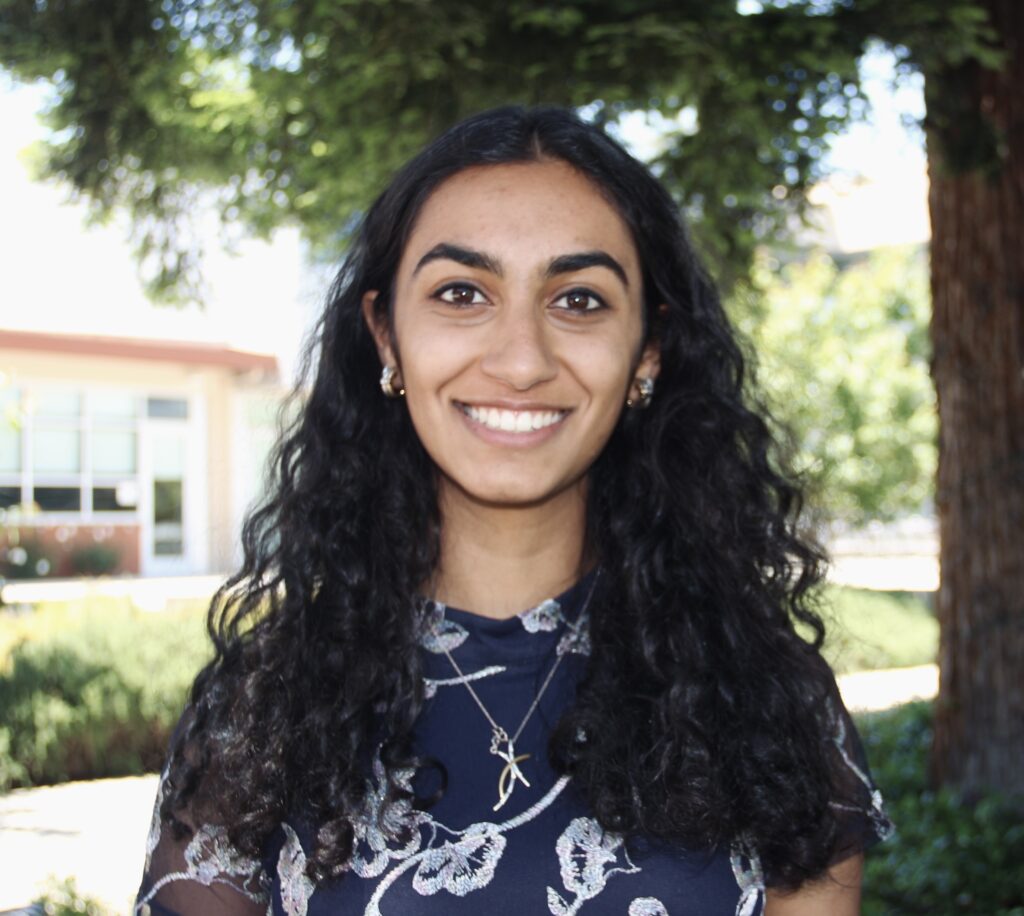
I'm interning with CEPI in the Policy and Public Partnerships teams (in the broader division for Policy, Partnerships, and Access). CEPI is generally focused on accelerated vaccine development for pandemic preparedness, aiming for a world in which vaccines can be ready for emergency use in 100 days from the identification of a pandemic pathogen and pandemics can be eradicated while trying to enable equitable access to these and other medical countermeasures. I've been working on a variety of projects both internally and with external partners, which has given me a good overview of the global public health landscape in general. I'm supporting efforts to pre-position what the equivalent to COVAX might be for future potential pandemics, specifically trying to map the triggers that prompt action at different points on the vaccine value chain for various organizations (international and regional); I've also been involved with the policy framing and discussions around an epidemiological-macroeconomic modeling project about the impact of preparedness and surge financing for vaccines. While these two have been my main focus, I've also gotten to work on and help with initiatives pertaining to CEPI's engagement with civil society as well as the European Commission, the structure of a "One World Vaccine Library," and questions around vaccine stockpiling.
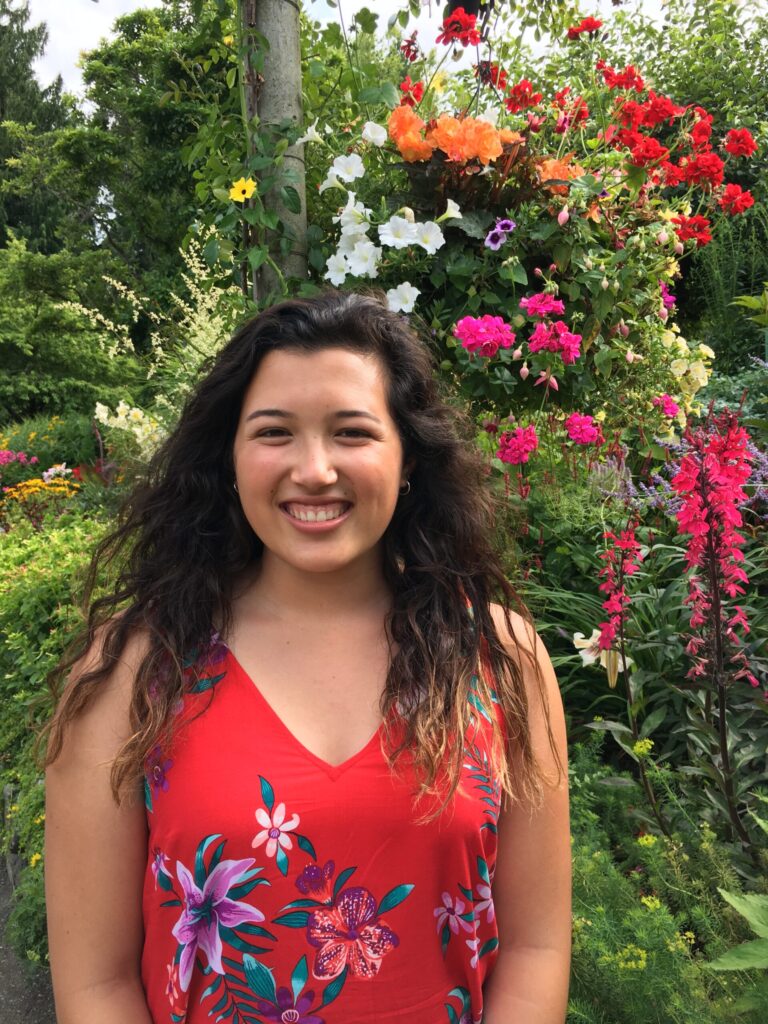
This summer, I am working at Ariadne Labs on the Better Evidence team. The lab was founded in 2012 by Atul Gawande and Bill Berry with the mission of ensuring health systems equitably deliver the best possible care for every patient, everywhere, every time. On my team, I am working to fulfill this mission by creating a curriculum to help teach people how to implement UpToDate, an evidence-based clinical resource, in their medical programs. Every year, my team donates UpToDate subscriptions to about 20 medical schools across Africa, and this curriculum will help ensure the schools can make the most of this resource. Spreading UpToDate and other evidence-based tools is critical, as these tools have been shown to increase treatment efficiency, improve quality of care, and lead to better patient outcomes.
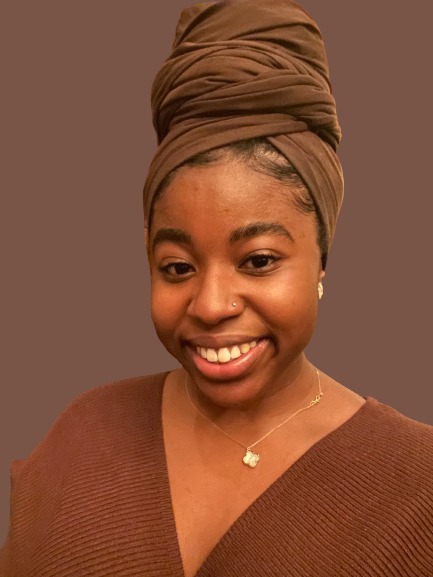
This summer, I am working at Boston Healthcare for the Homeless Program as a case manager intern. On a daily, I meet with patients to connect them to essential services such as transportation, shelter, housing, phones, etc. based on their needs. I also work at the Foot Clinic to provide direct foot care to patients. Through my internship, I have learned more about barriers to health due to stigma, available resources, and the effects of public policy on the daily lives of patients I see. This experience has been extremely rewarding and has provided clarity on my future career aspirations!
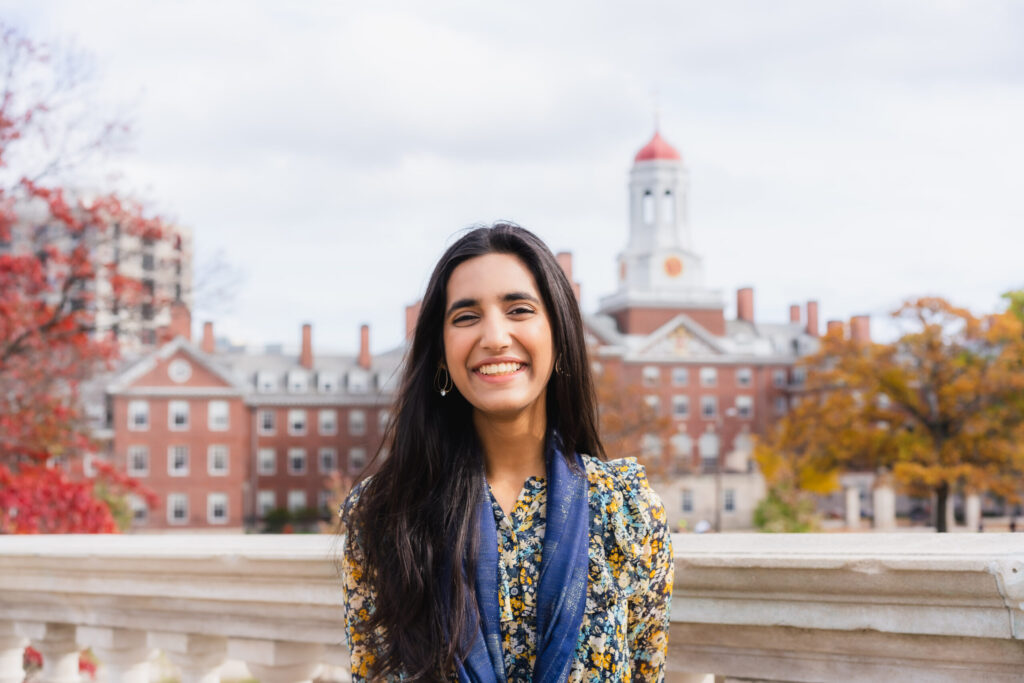
This summer I have had the opportunity to intern with the National Academy of Social Prescribing (NASP) in London. This national charity champions social prescribing which works alongside healthcare to resolve issues that contribute to poor health and quality of life by connecting people to non-medical support. As part of my role at NASP, I am currently engaged in a comprehensive mapping exercise focused on children's and young people's social prescribing initiatives across the globe. This endeavor has allowed me to connect with a diverse range of individuals, including parliamentarians, student leaders, and international policymakers. Additionally, I have had the privilege of going on on-site visits to witness firsthand the practical implementation of social prescribing in various communities. Beyond all of this, I have also had the opportunity to learn more about the UK healthcare system and familiarize myself with health equity concerns around the world. This experience has truly opened my eyes to the dire need of transitioning away from sick care to a healthcare model based on disease prevention and health creation!
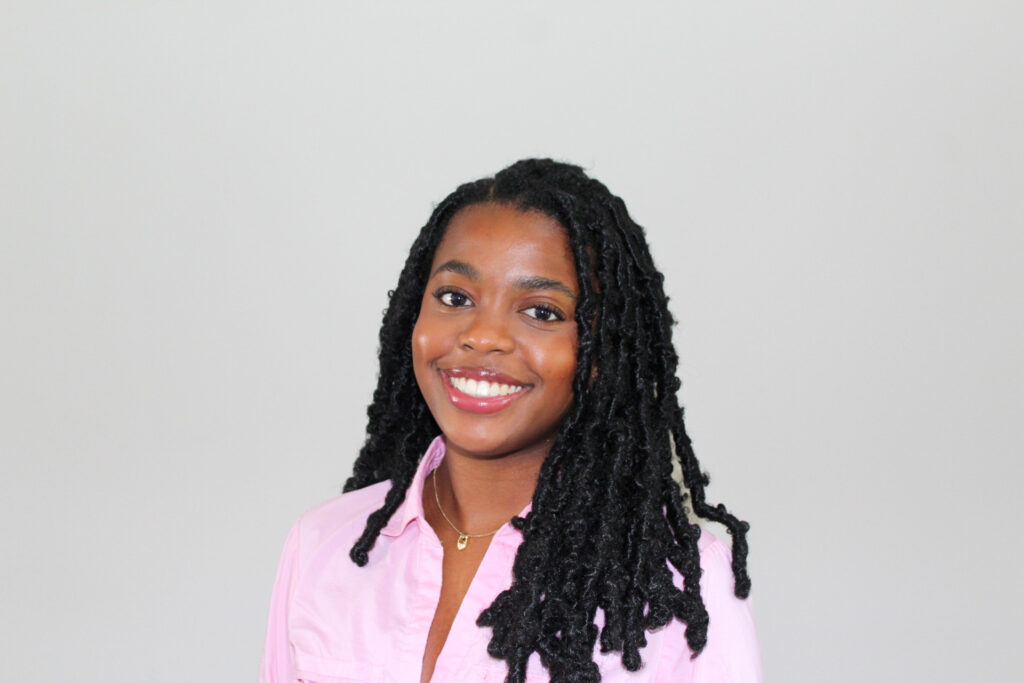
This summer, I am interning at Ariadne Labs, a joint center for health systems innovation at Brigham and Womenu2019s Hospital and the Harvard T.H. Chan School of Public Health. As part of the Better Evidence team, I am investigating the impact of providing the latest digital clinical decision support tools to healthcare providers in low-resource settings. This initiative serves to improve patient outcomes in areas with limited access to reliable clinical information. In my role, I have been analyzing and organizing thousands of testimonies from health providers around the world to assess the effectiveness of these support tools. I have also been involved in analyzing and documenting gaps in available data on medical schools across Africa to monitor and support the development of medical education institutions across the continent. I am honored to be a part of the inspiring work conducted by the Better Evidence team and Ariadne Labs to improve global patient outcomes this summer!
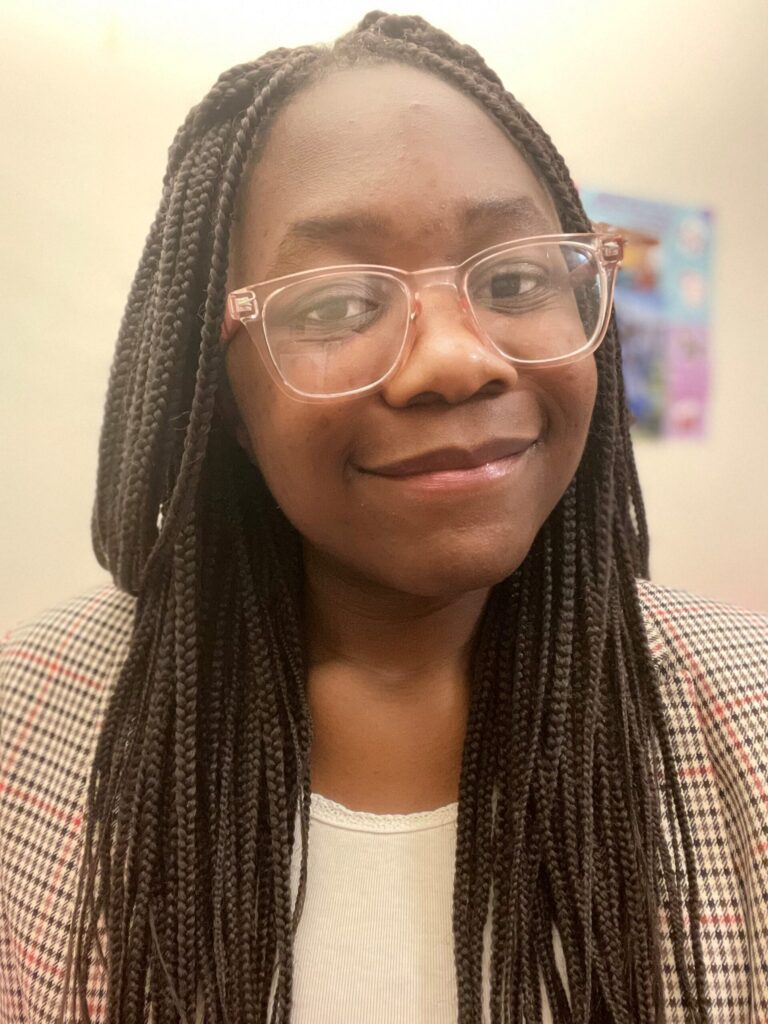
This summer, I am conducting research for the Division of Global Health at Massachusetts General Hospital. Iu2019m working on the FLOURISH Cohort Study, a project under the Botswana-Harvard AIDS Institute Partnership. The work I do focuses primarily on data analysis to quantify the effect of in-utero HIV or antiretroviral exposure on childrenu2019s growth and development, academic performance, infectious morbidity, all-cause mortality, and more. My culminating product is going to be a manuscript on the relationship between HIV status and anxiety and depression in caregivers. The data Iu2019m analyzing will then influence policies at the Botswana Ministries of Education and Health.
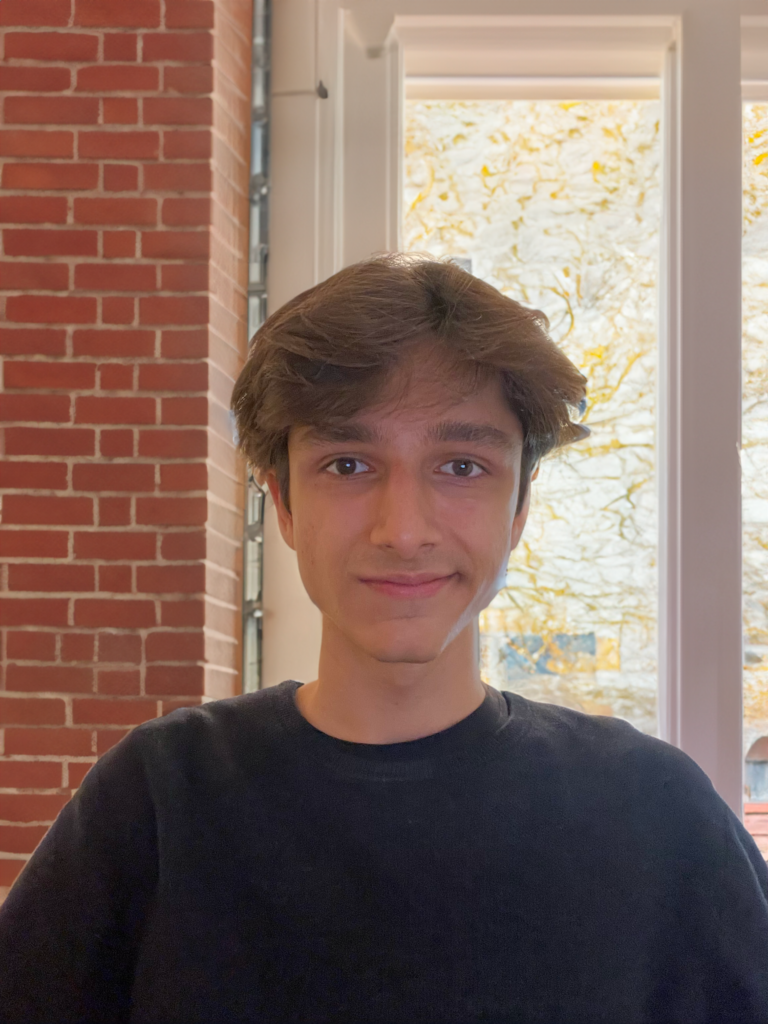
With the support of HGHI, I have had the wonderful opportunity to work with Dr. Cecile Viboud at the National Institutes of Healthu2019s Division of International Epidemiology and Population Studies. As an intern, I have supported research on how epidemiological projections account for vaccine interventions. In particular, I am working with the Scenario Modeling Hub, a consortium of researchers that have produced probabilistic forecasts for the flu and COVID-19 by combining over a dozen independent models into linear opinion pools. By analyzing the role of vaccine effectiveness in forecast models, this research will better inform public policy for vaccine allocation and rollout in future outbreaks.
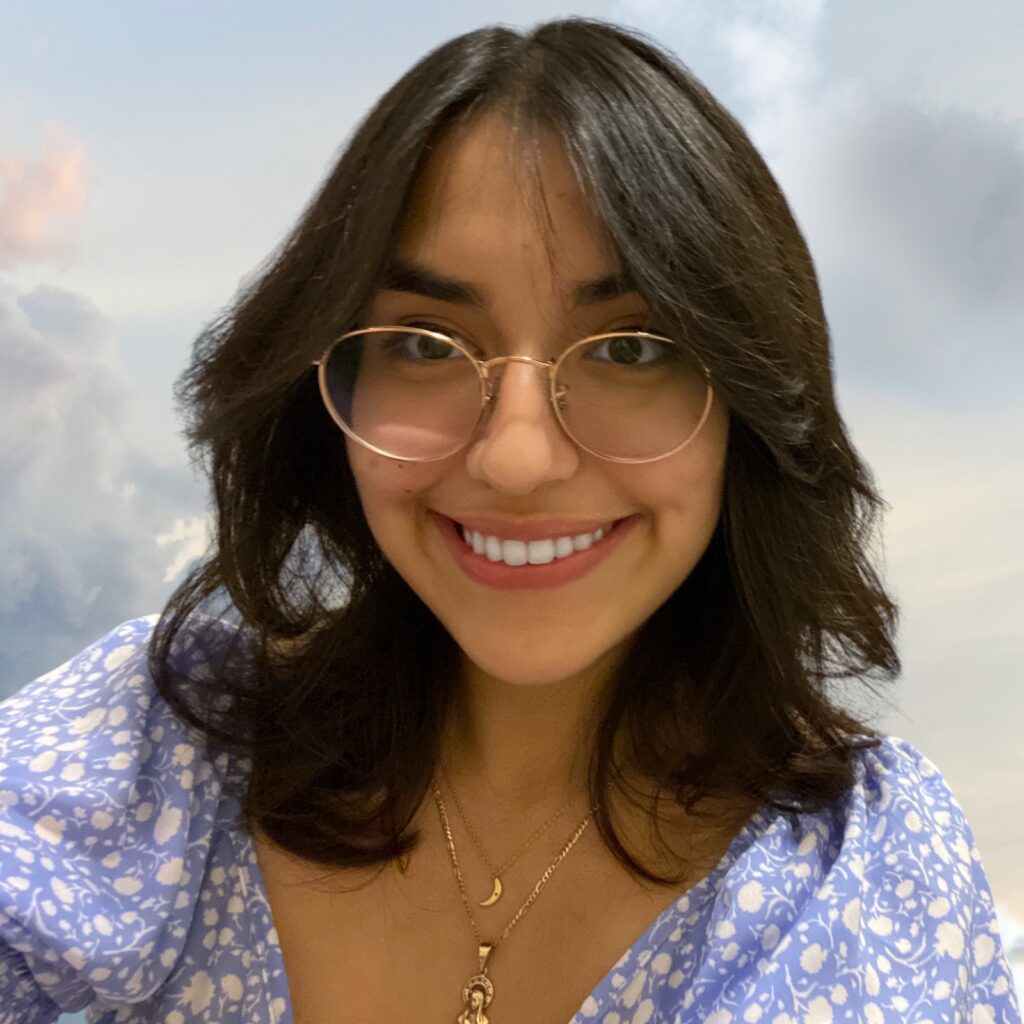
This summer, I am working for Socios en Salud in Peru. Part of my work has been accompanying community agents to their home visits with patients living with schizophrenia and their caregivers. Iu2019ve learned a lot about the needs of being a caregiver and the many challenges that the healthcare system in Peru can pose to patients and their families. I am currently working on a qualitative research report summarizing the needs of the program and the good work that the community agents provide. Through this internship, I hope to be able to come up with interventions to help these families and learn more about ways to improve mental health care.
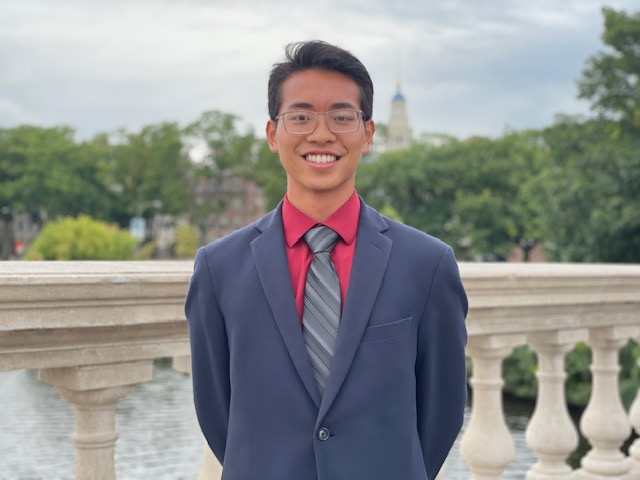
Shigella bacteria play a role in hundreds of infections annually and do so through a fascinating infection process known as Type 3 Secretion System (T3SS). I specifically study the array of conserved T3SS genes on the virulence plasmid that currently have unknown structures and functions. Within this study, I focus on how these unknown genes influence the secretion of effectors, the proteins that carry out process of infection. This then allows me to draw conclusions on the role of such unknown genes to further build upon clinical and experimental models.
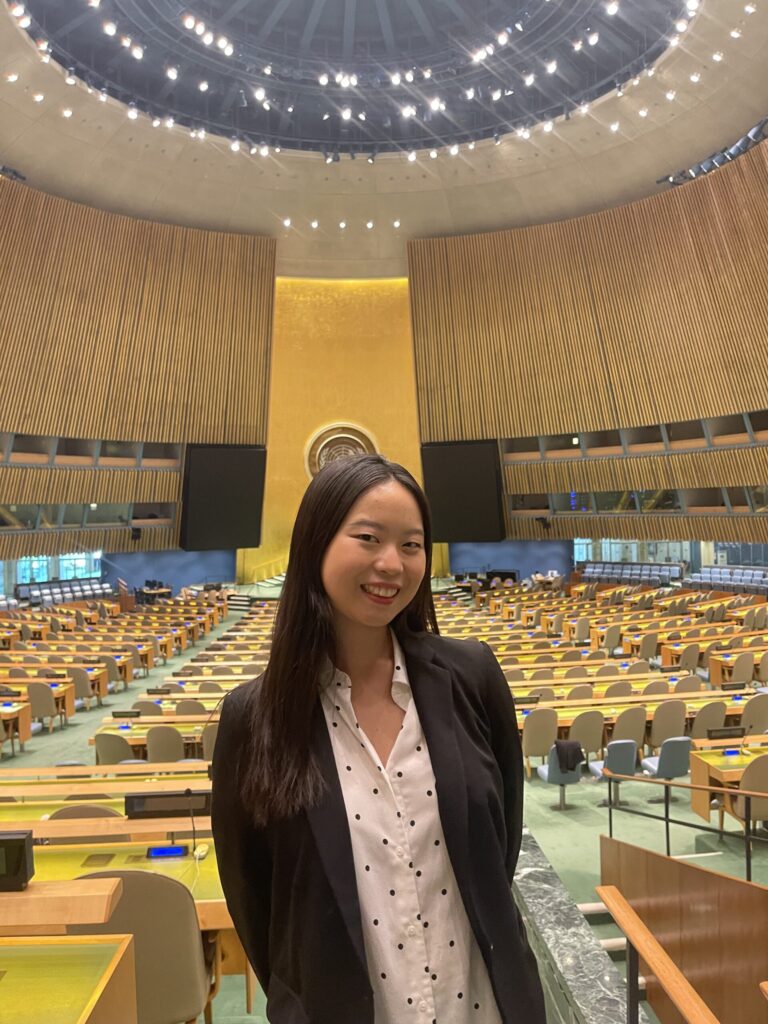
This summer, I'm interning with the United Nations Population Fund, the UN agency aimed at improving reproductive and maternal health. As part of the Sexual and Reproductive Health Branch, I am supporting the Global Campaign to End Fistula. Obstetric fistula is a childbirth injury that results from prolonged, obstructed labor and is entirely preventable; eliminating it is crucial to achieving the 17 Sustainable Development Goals by 2030. I have been compiling data from 55 UNFPA-supported countries and conducting research to better inform the causes that lead to obstetric fistula. This has been an amazing opportunity to observe the international collaboration that comes out of a shared mission to improve healthcare for all.
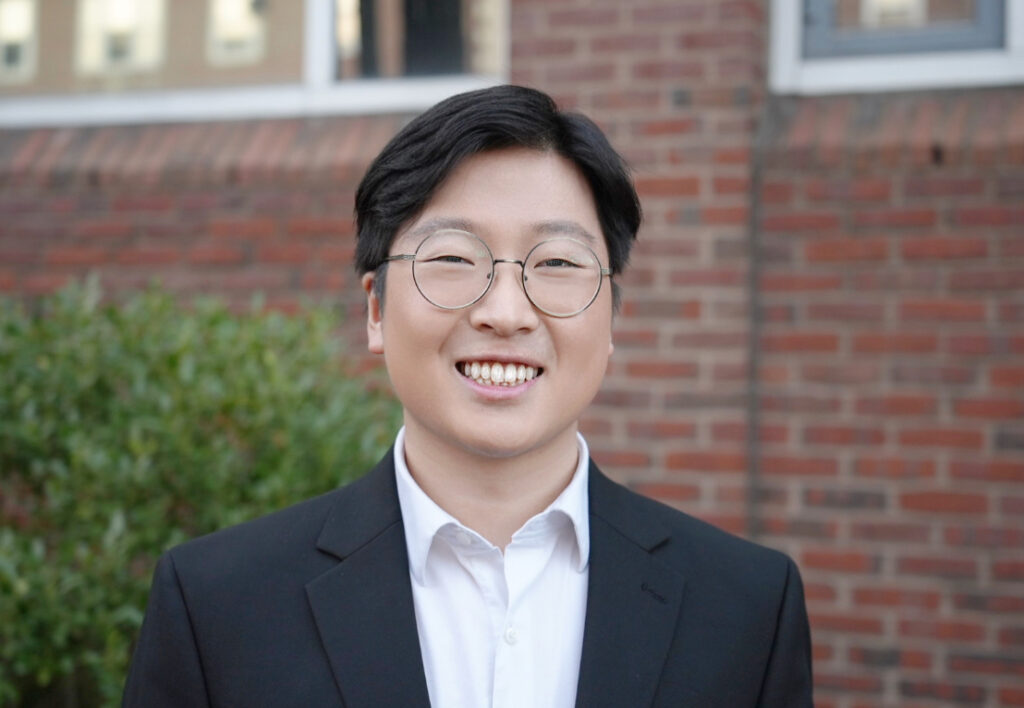
This summer, I will be working in Durban, South Africa to study and research the cellular immune responses to HIV infection at the African Health Research Institute with Professor Zaza Ndhlovu. Through this opportunity, I have the unique experience of working directly in the world's epicenter of HIV infection while learning from the best scientists in Africa.
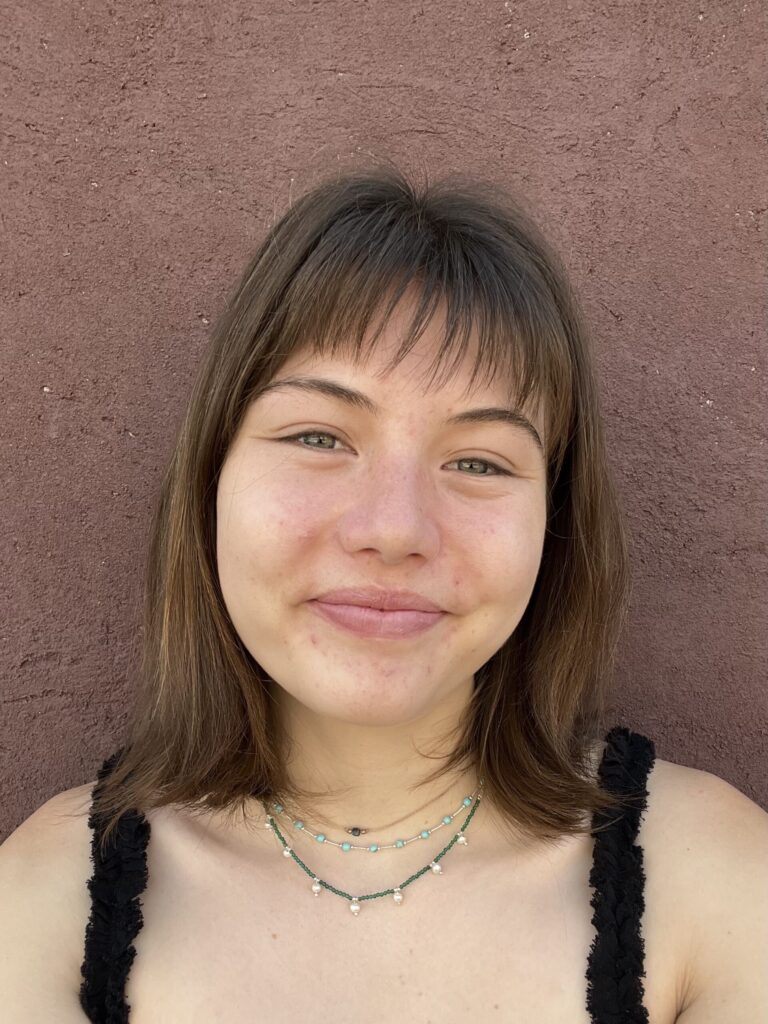
This summer, I am interning as a researcher of health policy with the Tecnolu00f3gico de Monterrey. My two research projects, by choice, focus on obesity in Mexico, an interest of mine sparked by working at a health clinic in Oaxaca during my gap semester. My first project examines the underconsumption of whole grains in Mexico, a driver of diabetes, as it relates to changes in the political economy and thus national food system. I am currently conducting a systematic literature review on the topic in preparation for a longer interview-based publication that will follow. The second project I am assisting will investigate the social media narratives surfacing around Ozempic and other semaglutide weight loss drugs and whether they aptly communicate public health messaging. I feel extremely fortunate to be collaborating with fantastic researchers across various disciplines and geographies!

This summer, I am interning with the Child Protection Research Group at the London School of Hygiene and Tropical Medicine. As an intern, I am supporting the development of quantitative measurements that will be used to evaluate the Safe Schools Programme, an intervention designed to prevent violence against children in primary Catholic schools in Zimbabwe. In addition, I am conducting interviews and writing profiles about the first cohort of participants in a data-to-action research course that aims to equip researchers with the skills to conduct impactful research using data collected from Violence Against Children and Youth Surveys (VACS). Thirdly, I am contributing to a grant proposal for a project that seeks to generate new evidence on how climate mitigation and adaptation efforts can meet the needs of children and young people.
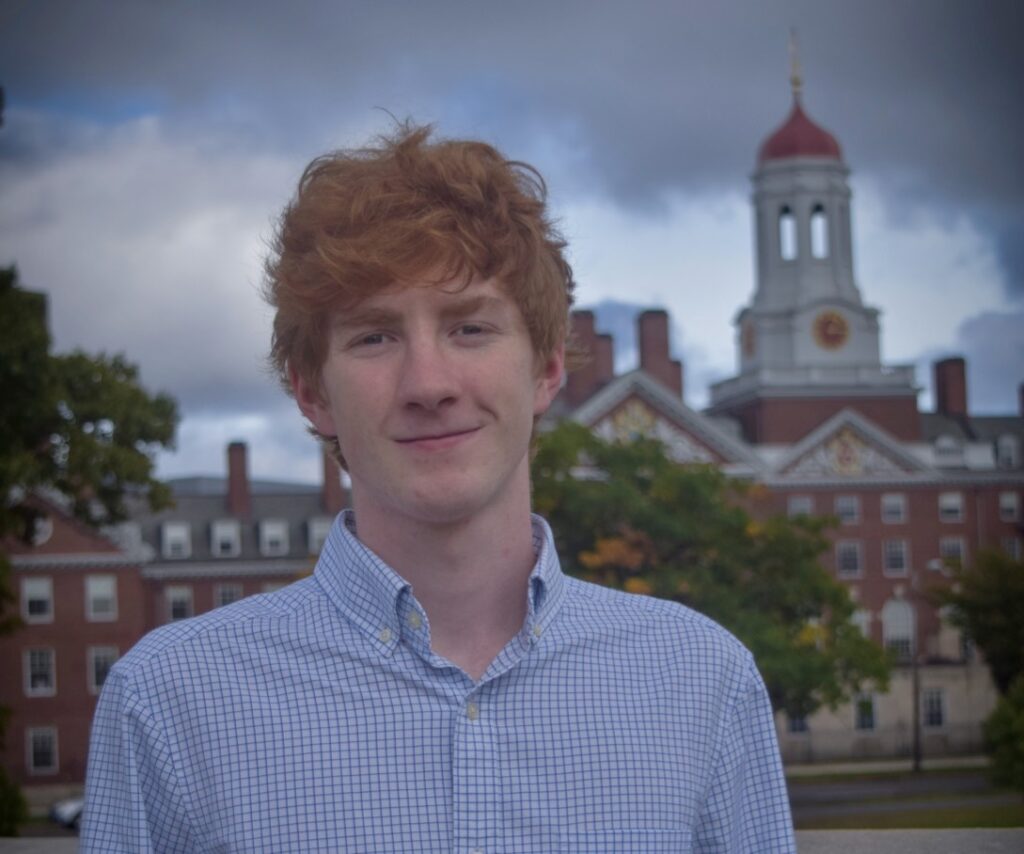
This summer, I am volunteering in the emergency department at Bellevue Hospital through the Project Healthcare Summer Volunteer Program. My role is primarily based around patient advocacy, ensuring all patients have their needs met within the busy (and often hectic) emergency department. I am able to address the gaps in public health evident from my work at Bellevue through both a public health fair presentation and a physician-guided research project. In addition to my active role, I also have the opportunity to observe a wide spectrum of medical care, from trauma interventions to social work to surgical procedures.
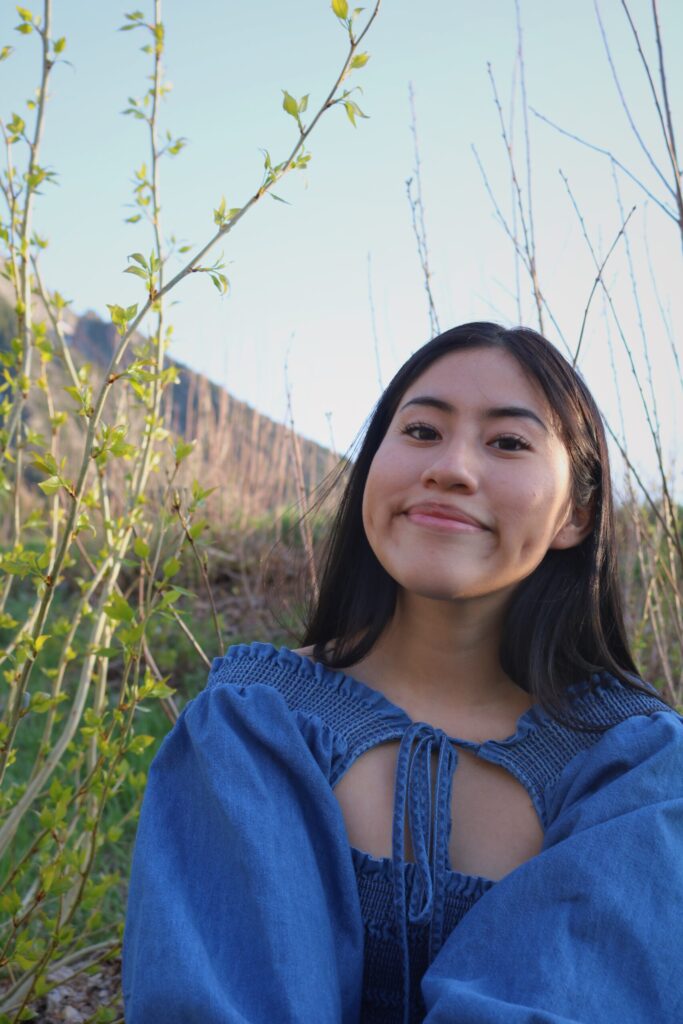
This summer I have been working with Partner in Health Engage (PIHE) as an Advocacy Intern. Each summer PIHE hosts a Training Institute and Hill Day for its national Team Coaches to learn more about PIH mission and introduce this year's Advocacy Campaign. During Hill Day participants meet with their Congressmen to discuss the bills/resolutions for this years campaign. My role has been to finalize the legislation plans included in this year's campaign, create resources for Team Coaches to meet with their representatives, and organize events and communication leading up to TI and Hill Day.
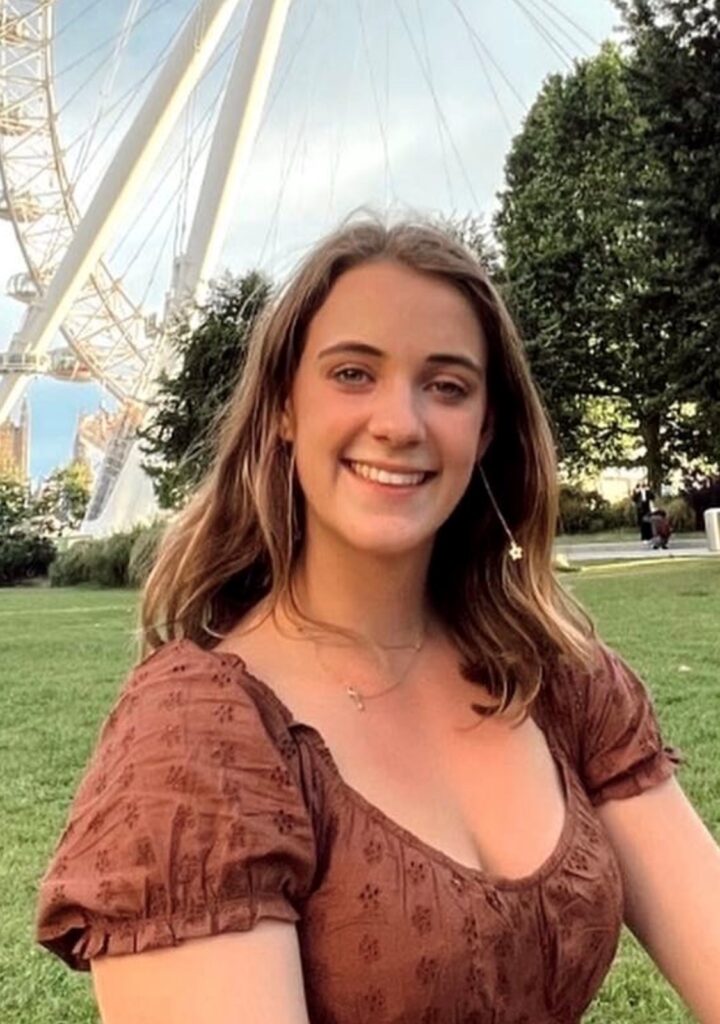
I have so enjoyed my work with the Ragon Instituteu2019s FRESH Clinic this summer. During my time with Females Rising through Education, Support, and Health, I have had the opportunity to support development on the curriculum for FRESH 1.0: a nine month empowerment program focused on poverty alleviation in women aged 18-23 living in Umlazi (identified as a vulnerable population for contracting HIV). Additionally, I have also gotten to contribute to the social-behavioural research study that is currently underway at FRESH, learning about and supporting qualitative research in a trauma-informed setting. Working at FRESH this summer and meeting all of the wonderful people there has been a truly amazing experience!
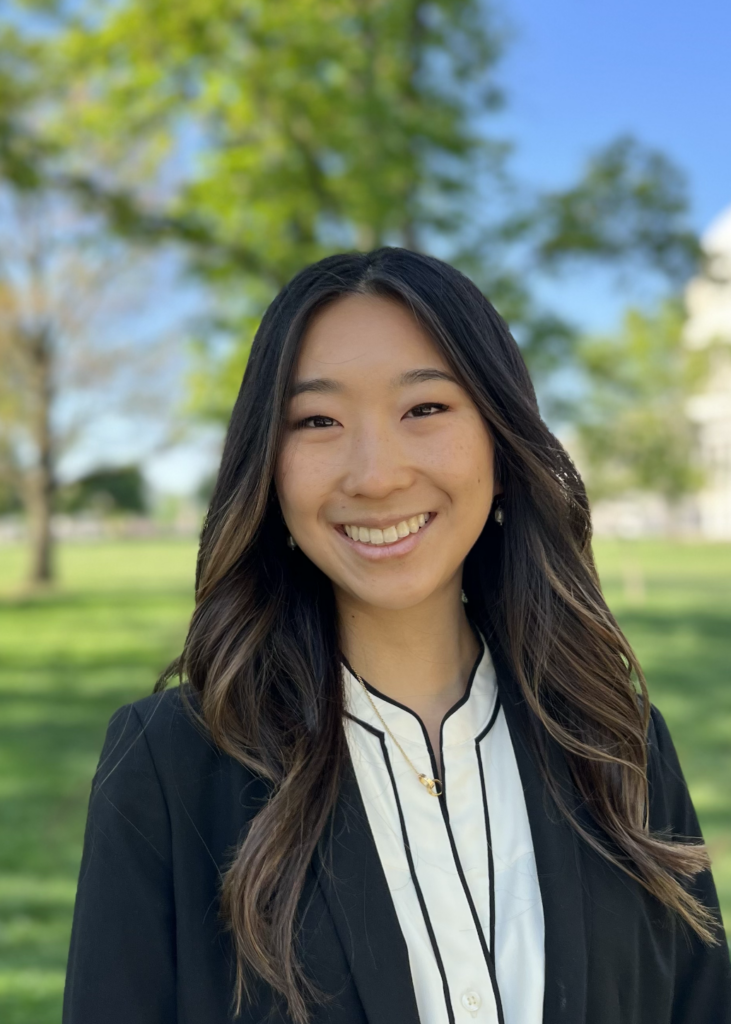
This summer, I am working at the FRESH program (Females Rising through Education, Support and Health) in Umlazi Township, South Africa, which combines basic science research and poverty alleviation for young HIV-uninfected women at high risk of infection. Along with the research program, participants are co-enrolled in a life and job skills empowerment program that seeks to uplift and empower them in their communities. My responsibilities include the development and redesign of the curriculum, study recruitment, on-site clinical support, data collection, and coordination of various sociobehavioral research projects. I am deeply inspired by and grateful to the team at FRESH and the Ragon Institute and am eager to continue learning and working at the intersection of social intervention and medical research.
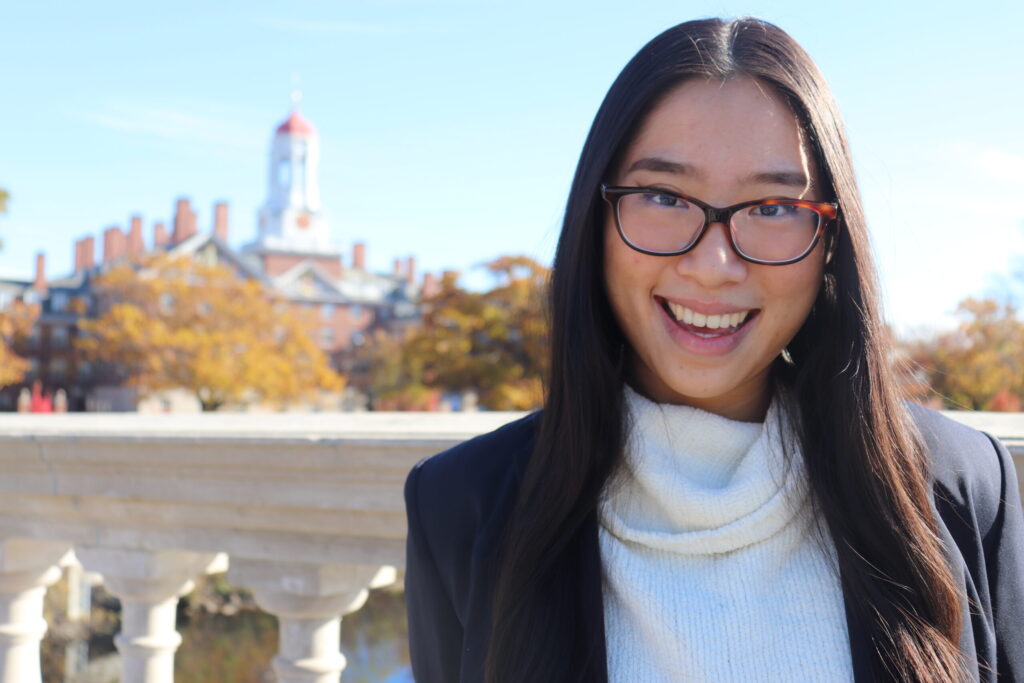
This summer, I am helping Touch Foundation launch and scale m-mama, a health communication technology that aims to reduce the number of neonatal and maternal deaths during labour. The health technology works by connecting hospitals to each other so they can quickly refer patients and organise transport to get mothers the care they need. During my internship, I am building an automated dashboard that centralises the referral information in one place too better process the data. Additionally, I am analysing data to understand the impacts of this technology on number of mothers and babies saved. It has been an incredible learning experience!
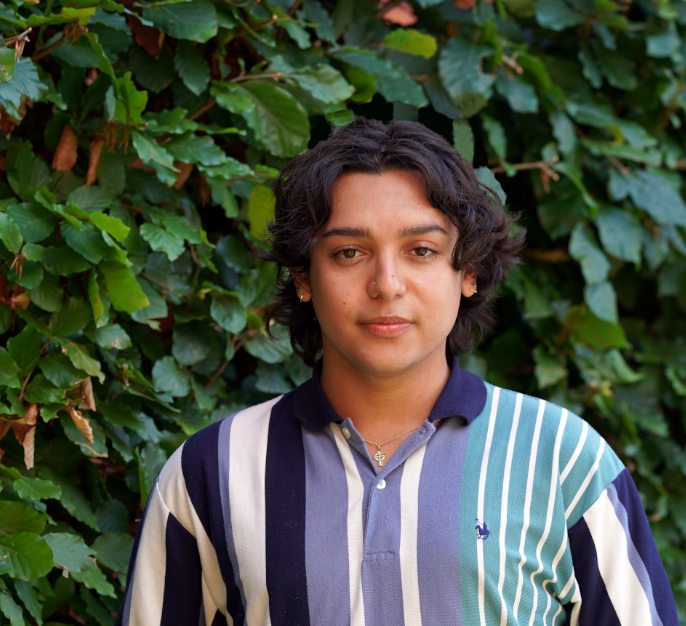
I support a quantitative course for mid-career researchers from LMICs to use the Violence Against Children Survey. I am interviewing participants and publishing the interviews for our stakeholders to use for future course funding and for participants' professional growth.nnI am developing a quantitative tool for an evaluation study of a school-based intervention preventing violence against children that will help to understand how the intervention works beyond the main outcomes of reduced bullying, corporal punishment, and improved school climate. I am researching various validated measurements towards this end, for example measures of discriminatory gender norms among students.nnFinally, I am writing portions of a grant on the impacts of climate change on child well-being, specifically climate anxiety in children and participatory youth methods in climate change policy planning.
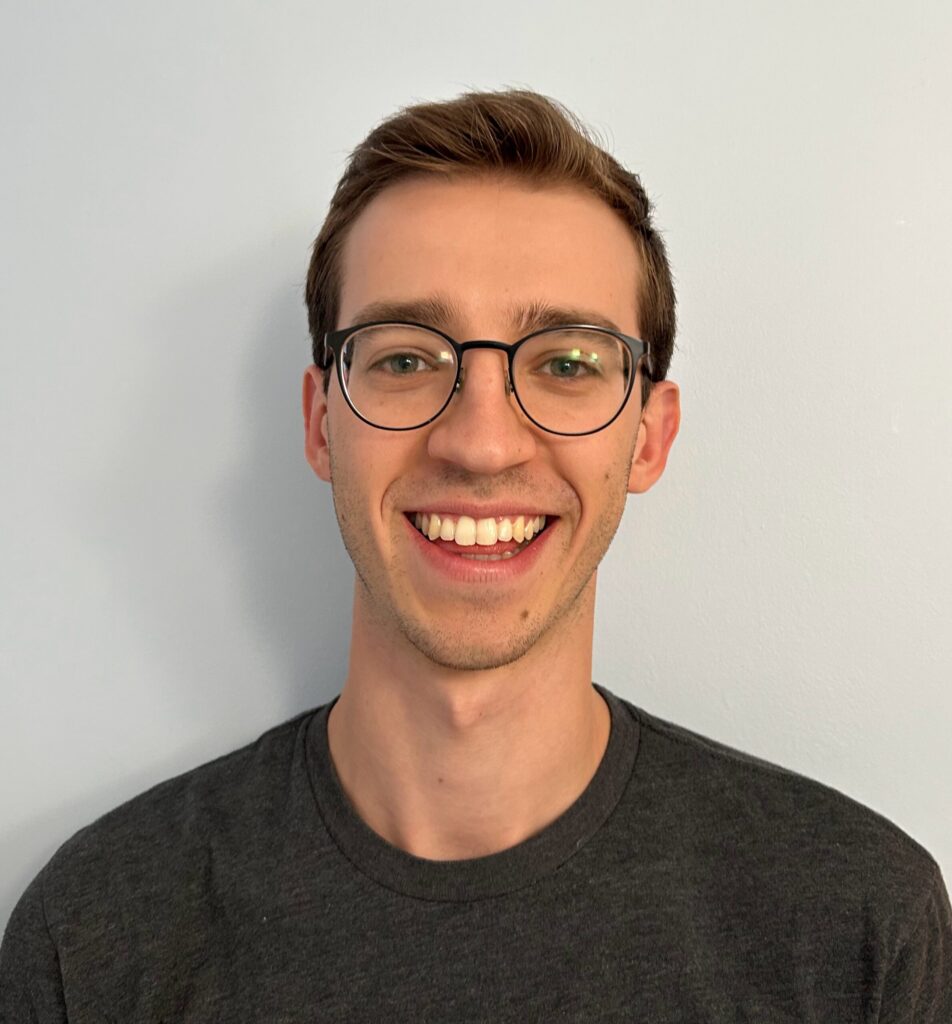
I have been working for Socios en Salud, the branch of Partners in Health for Peru. My work has been focused on improving a program to assist patients suffering from schizophrenia. I am using data on the patientu2019s well-being and participation in the intervention to understand the effectiveness of the program and identify ways to improve it. I am also using computational methods to optimize the assignment of patients to community agents so that funding for the program can more effectively and efficiently serve more patients. So far, my favorite part has been getting to meet and talk with the community agents, the patients, and their caretakers!
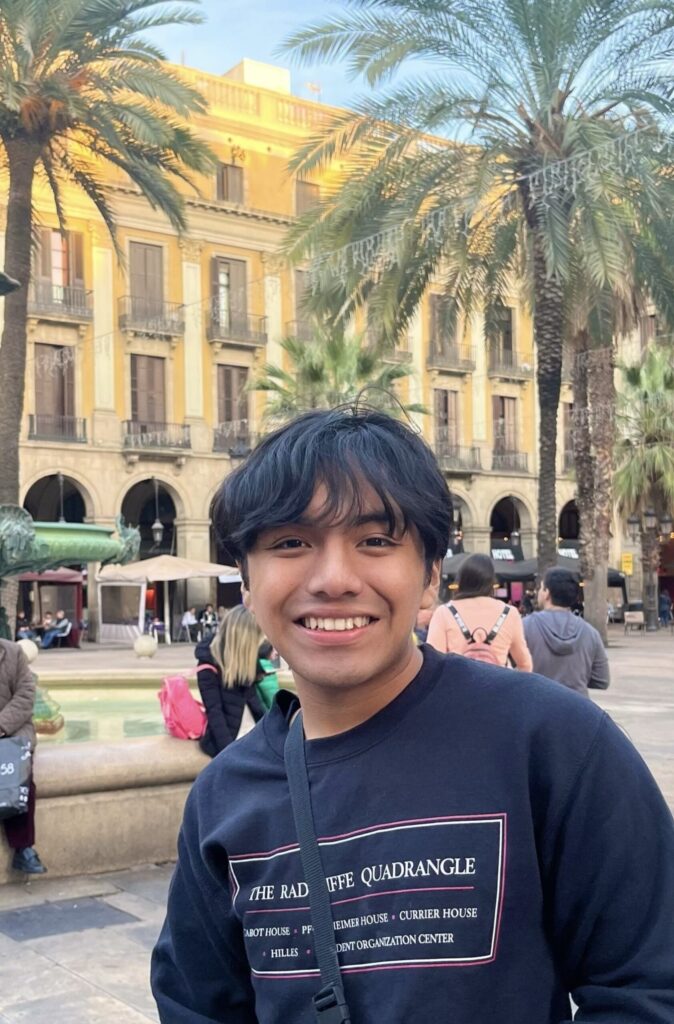
I work at the Perinatal HIV Research Unit (PHRU) located in Chris Hani Academic Hospital. My primary focus is on a research project that investigates interventions for violence among adolescents, particularly in relation to its intersectionality with HIV. As part of my internship, I engage in community outreach initiatives designed to reduce violence in Soweto and help develop grant proposals other various research endeavors. I shadow doctors and nurses from different divisions within Chris Hani, colloquially known as BARA, Africa's largest and the world's seventh-largest hospital and collaborate with professors and students at the University of the Witwatersrand. I immerse myself in new environments with PHRU and gain a deeper understanding of different perspectives and ways of life.
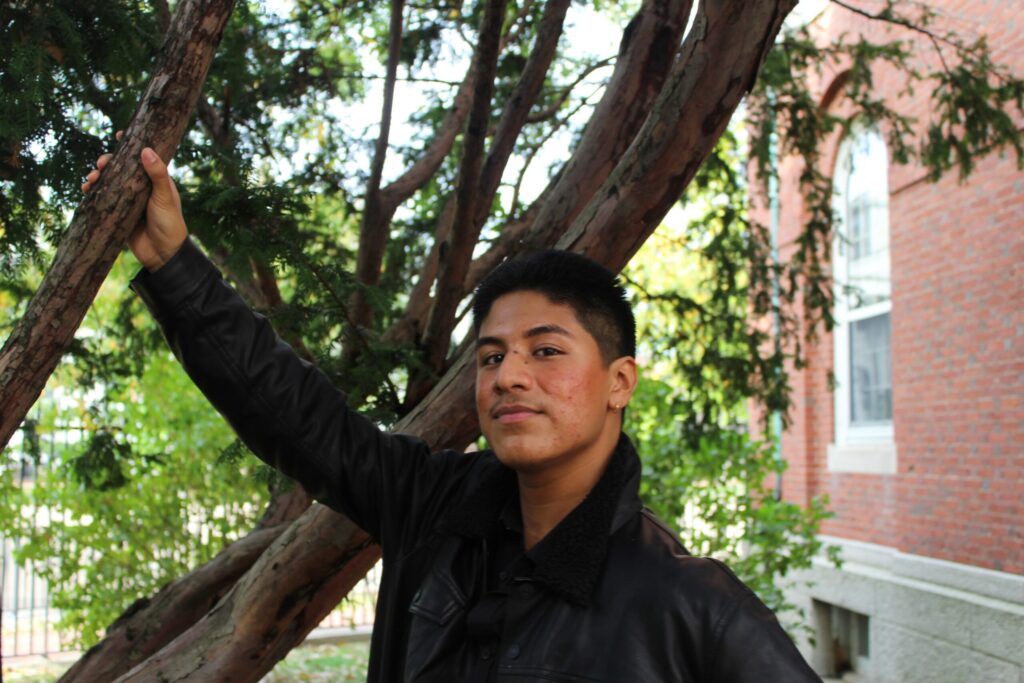
My internship at Partners In Health this summer has been an extraordinary experience. Within Partners In Health's unwavering commitment to achieving medical and moral global health justice, PIH Engage is dedicated to fostering a movement advocating for the fundamental right to health. In my position, I have been actively involved in the development of the PIH Engage Training Institute conference, which focused on equipping participants with effective skills for organizing health equity initiatives. This conference is taking place in August in Washington D.C., serves as a platform for 88 PIH Engage teams from across the United States, Mexico, and Peru to come together and launch new fundraising and advocacy campaign for the year ahead.
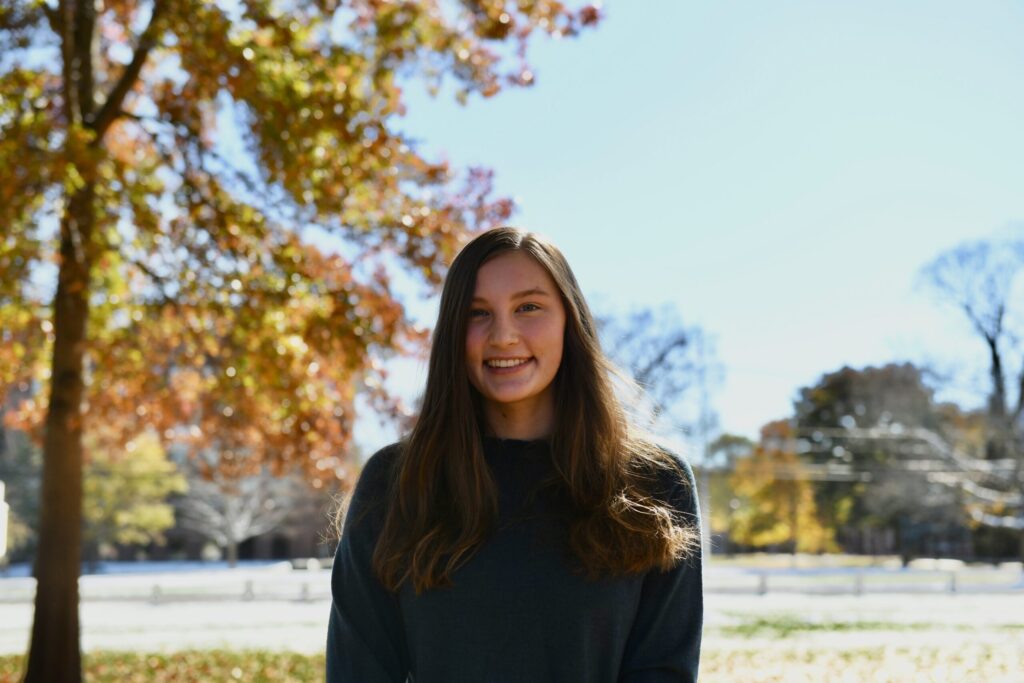
This summer, I have been working on three main projects for the Touch Foundation in Mwanza, Tanzania. The first is called MediFIKIA, and it has the overall goal of improving the care of NCD patients in Tanzania. It focuses on both preventing stock-outs of NCD medications in pharmacies to ensure patient access to medications and on patient tracking to improve long term patient care. I am also working on data-based analysis of various hospitals to inform interventions and hiring decisions. The third main project I am working on involves piloting different teleconsultation models to increase patient access.
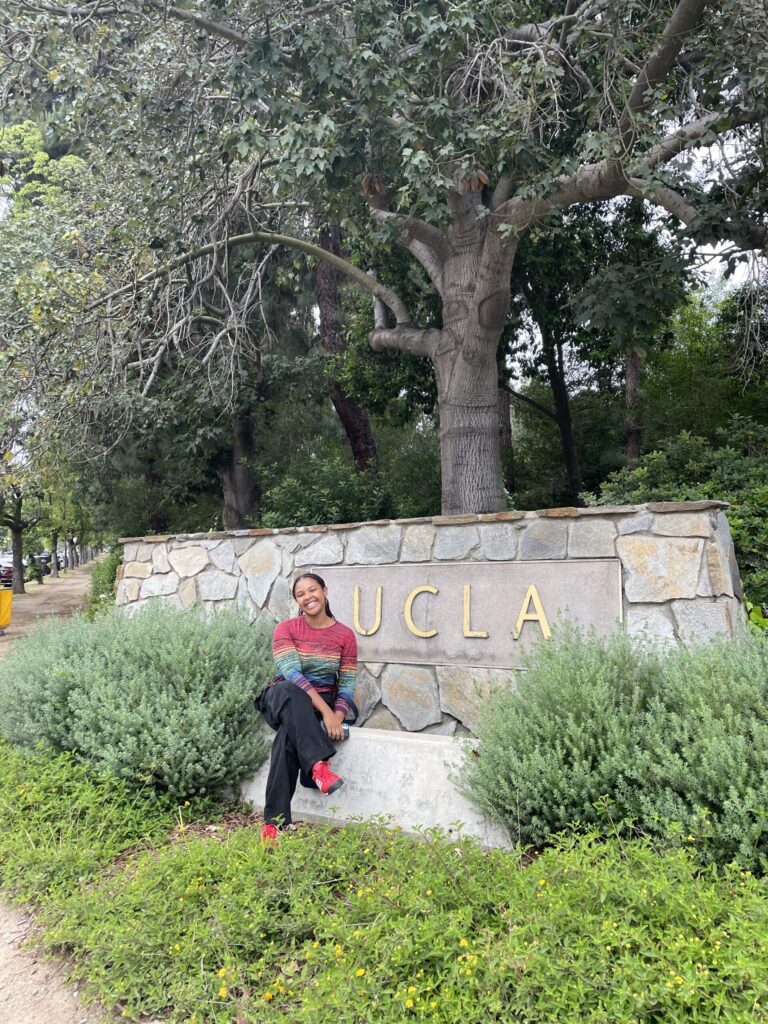
This summer, the Mindich Public Service and HGHI summer programs have afforded me the amazing opportunity to intern at UCLA's Art and Global Health Center. Here, we used arts-based education initiatives to teach safe-sex practices and healthy relationship dynamics to high schoolers and justice-system-impacted youth while also utilizing photography and film as an avenue for HIV-positive individuals around the globe to share their own stories. My work rests at many intersections: I help with video editing, qualitative research analysis, social media, curriculum planning, data collection, and even a little bit of fashion design. Interdisciplinary in both nature and practice, my internship always keeps me on my toes and excited for what the next day may bring.
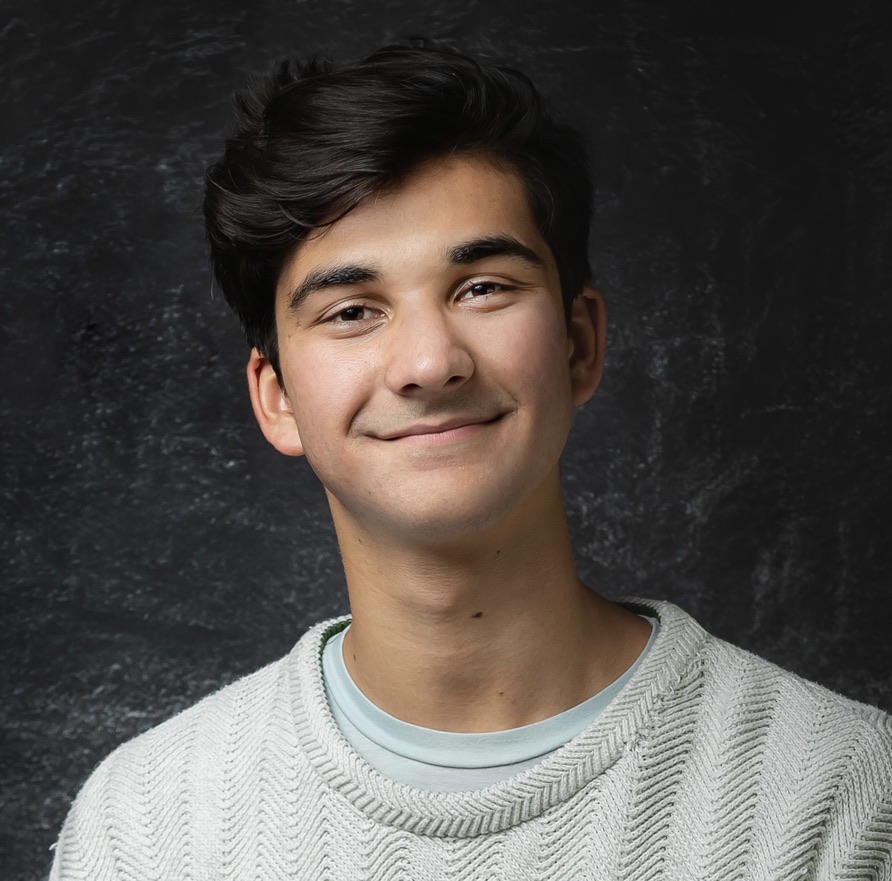
This summer, I am working in Durban, South Africa, at the African Health Research Institute in the lab of Dr. Zaza Ndhlovu. Dr. Ndhlovu and his team are investigating differences in how people living with HIV recognize the virus and mount an immune response, specifically differences in elite controllers – rare individual's whose bodies naturally fend off HIV. As part of an international collaboration, my role in this work has been processing samples from under-represented groups in order to build upon a body of findings from studies in the United States.
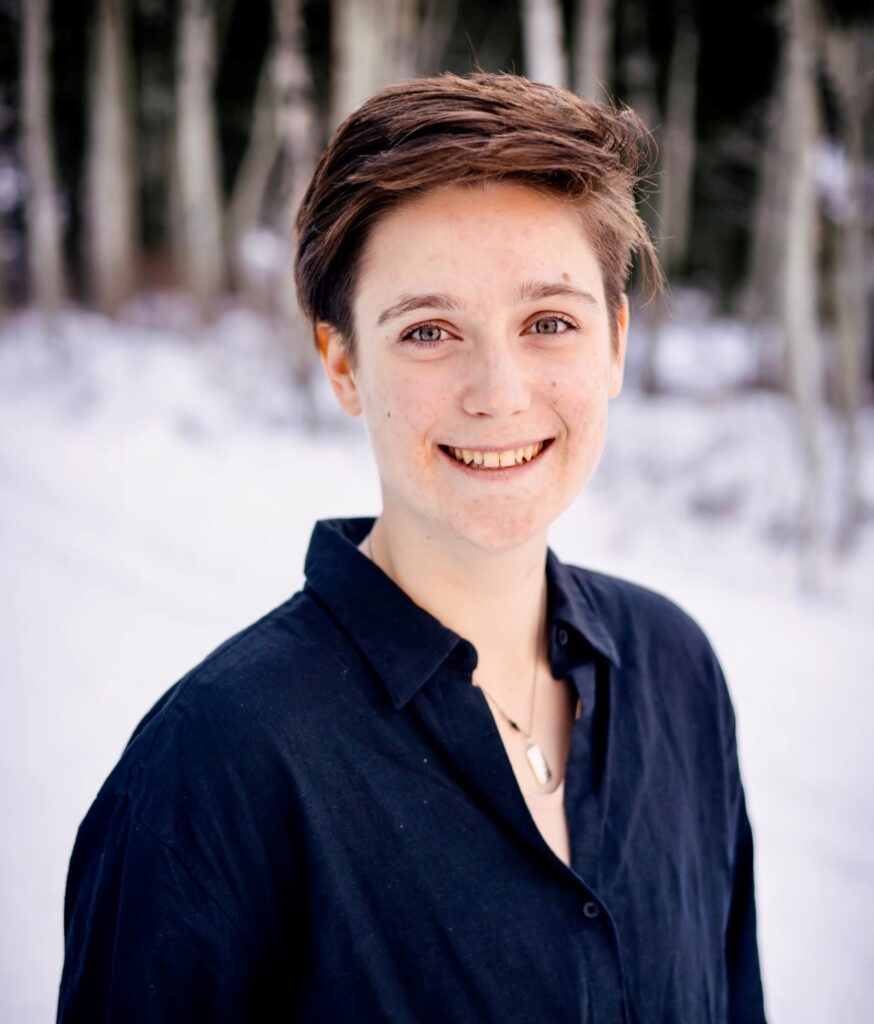
This summer, I am interning with GAVI the Vaccine Alliance and I am working with the Monitoring Evaluation and Learning Unit. As I am focusing on zero-dose u2013 GAVIu2019s initiative to reach individuals who have never been vaccinated, missed communities, and priority equity groups u2013 my internship aligns with my passion for understanding and addressing social determinants of health. I am working on two main projects. The first is a comprehensive mapping of ZD learning activities across different teams at GAVI, which has provided a great opportunity to talk to many individuals and understand different roles/activities in the organization. The second is a review of grant applications countries have submitted to better understand the sources and quality of data used to identify and target ZD children.
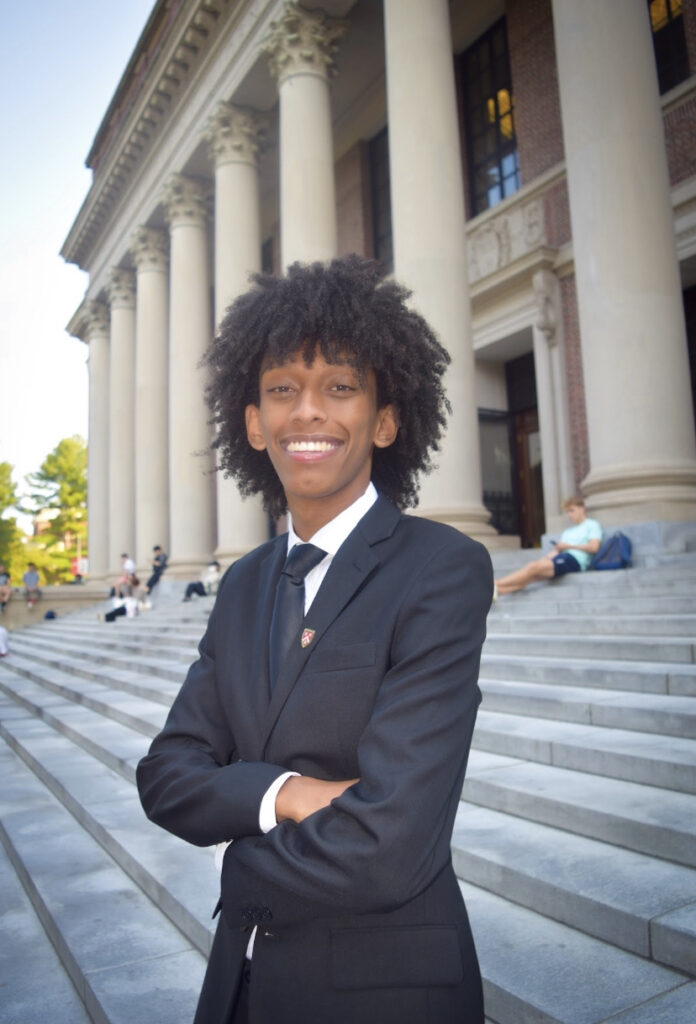
This past summer I worked for Health Leads, a nonprofit organization based in Boston. I primarily worked with the Neighborhood Food Action Collaborative. My work included data imputing and analyzing using surveys about food health, quality, and sustainability. I also created presentations and focus group drafts that were implemented to NFAC members.
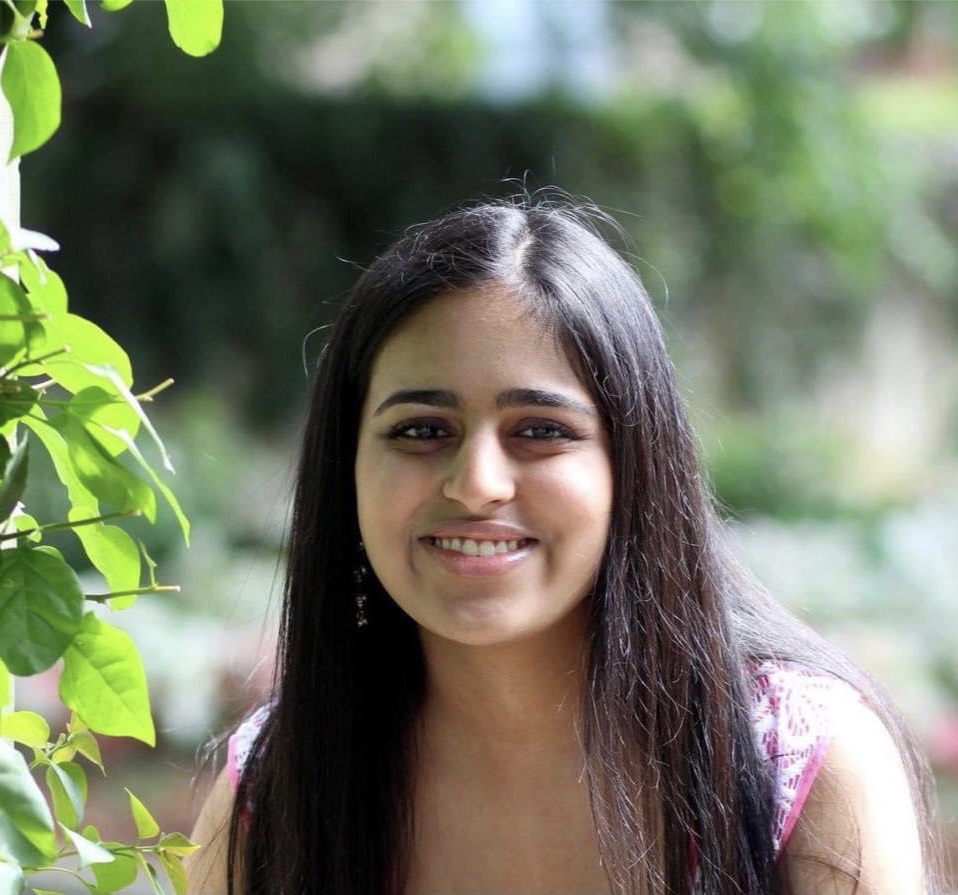
This summer, I'm interning remotely at the Perinatal HIV Research Unit (PHRU) located at the Chris Hani Baragwanath Hospital in Soweto, South Africa. My main responsibilities include writing a grant proposal and a manuscript that evaluates the reasons behind vaccine hesitancy and identifies the barriers towards vaccine accessibility among youth in South Africa. So far, I have completed literature reviews and helped to draft the introduction and methodology sections of the manuscript. I will also be performing qualitative data analysis using interviews conducted with community members. I am incredibly grateful for this enriching opportunity and am looking forward to conducting more meaningful work here!
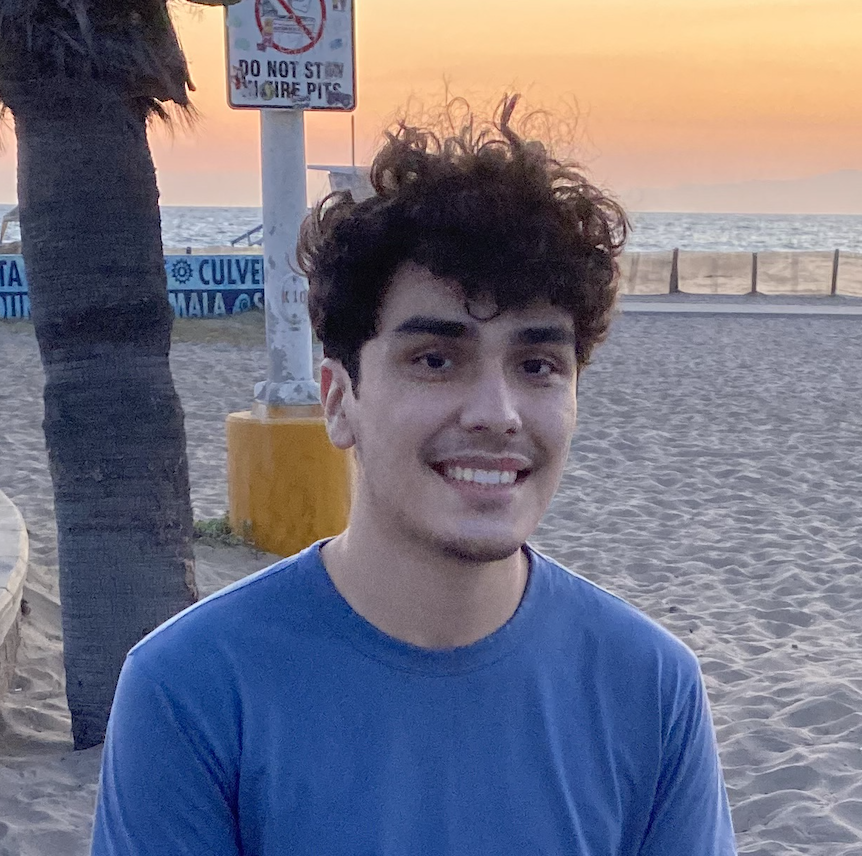
My name is James, and I am a rising senior at the College interning for Health Leads' California division this summer. My work is primarily on the "Beyond Do No Harm" Project, a learning innovation pilot intended to foster more equitable practices in health care. Through my work, I have been able to conduct research, work on organizational publications, and lead qualitative interviews with California residents to ensure Health Leads centers community members in their health equity work.
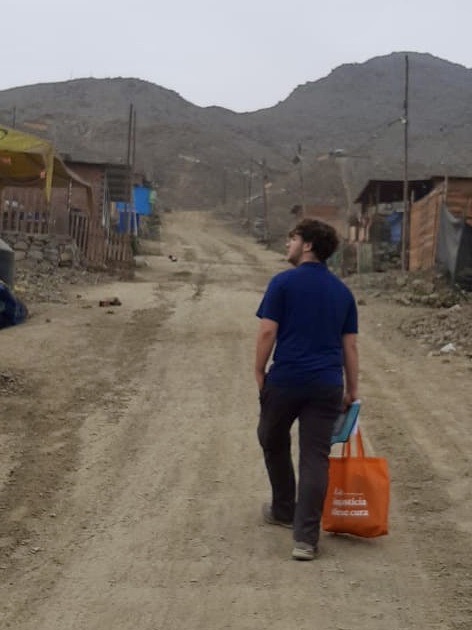
Hi! I'm Noah, a rising junior concentrating in Social Studies, and this summer, I'm interning at Socios en Salud, a community-based health NGO based in Lima, Peru. My work focuses on the CASITA project, an evidence-based early childhood development program that we run in Carabayllo, an impoverished district on the outskirts of Lima. Every day, I'm out in the field, helping the team screen and enroll child-caregiver dyads, and working on my own evaluation of the unique community health agent methodology that CASITA uses. I'm so grateful to everyone at Socios and HGHI for giving me this opportunity!
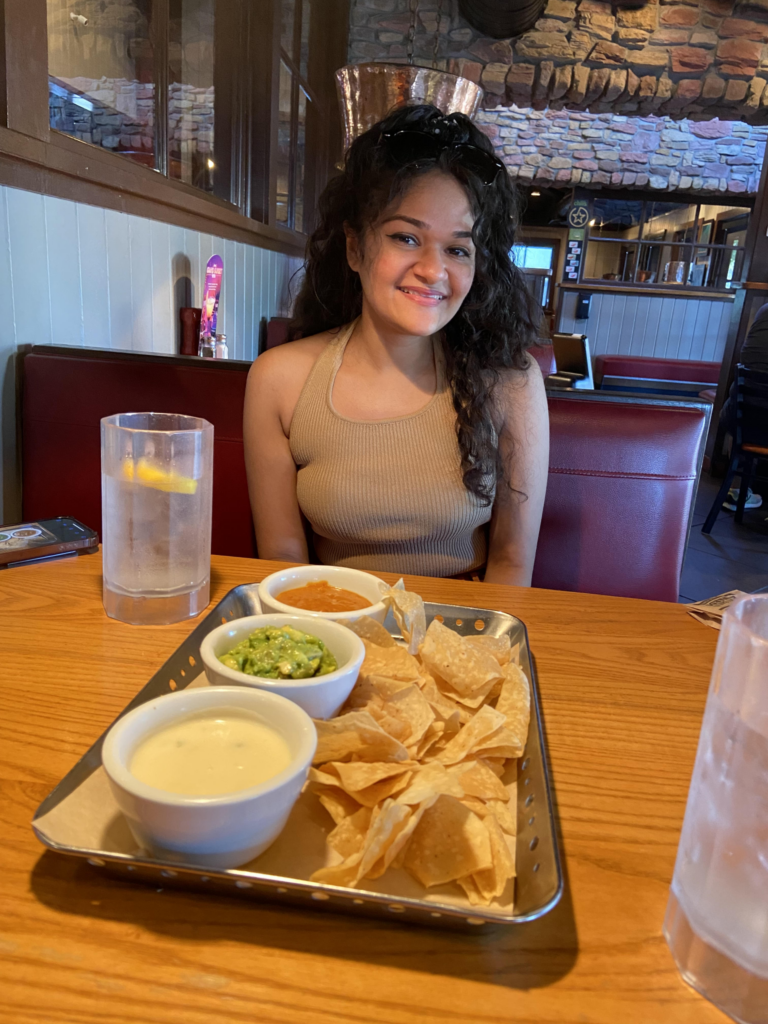
This summer, Iu2019ve had the privilege of working at the Ragon Institute of Harvard, MIT, and MGH in Durban, South Africa. As a hybrid intern at the Kwon lab and FRESH clinic, I spend half my time working on the phase II clinical trial for LACTIN-V (a potential HIV therapeutic) at the Nelson Mandela Medical School and half my time researching the biological and sociodemographic determinants of sexual health outcomes at the FRESH clinic. Iu2019ve also had the incredible opportunity to meet traditional African healers, visit local clinics, and listen to the deeply moving stories of women enrolled in the FRESH clinicu2019s life skills and empowerment program. Overall, this transformative experience has reinforced my commitment to fostering greater equity in medical research and healthcare delivery.
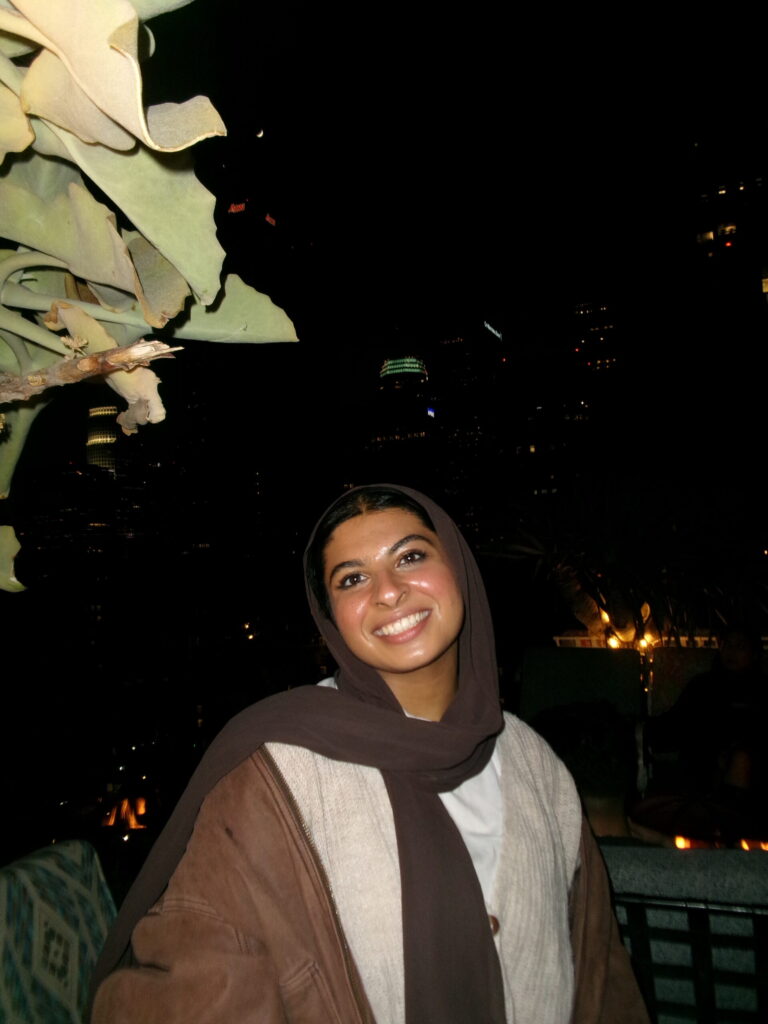
This summer I am interning at the Los Angeles County Department of Public Health in Alhambra, California. I work in the Substance Abuse Prevention and Control Division on Policy and Strategic Initiatives. Thus far, I have worked on a variety of projects from analyzing pending legislation affecting substance use treatment systems to helping with capacity-building efforts to expand the substance use disorder counselor workforce. Through this experience, I have been able to glean how community stakeholders, network providers, County departments, and health plan partners collaborate to design and sustain accessible and effective systems of care.
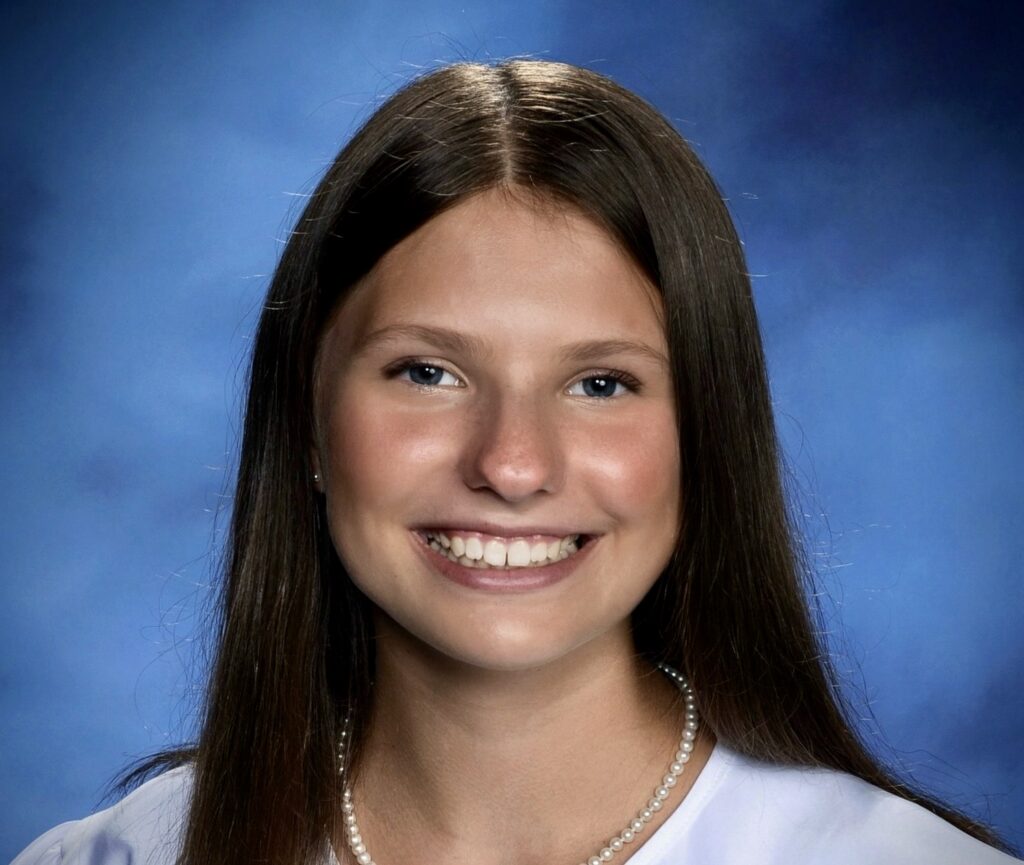
This summer, I am interning with Sangath, an NGO based in Goa, India that has committed itself to improving access to mental healthcare services in low-resource communities. As an intern for the Addictions and Related Research Group, I am working alongside psychologists, researchers, and community leaders on the Mental Wellbeing through Sports (MeWeSports) project, which aims to co-produce and evaluate a sports-based substance use prevention program for adolescents. In my role, I have been able to synthesize and analyze qualitative data from the projectu2019s recently completed pilot study, as well as help plan and facilitate an upcoming consultative workshop in New Delhi, where addiction, sports-for-development, and youth experts will come together to contribute to the refinement of the interventionu2019s components and Theory of Change.
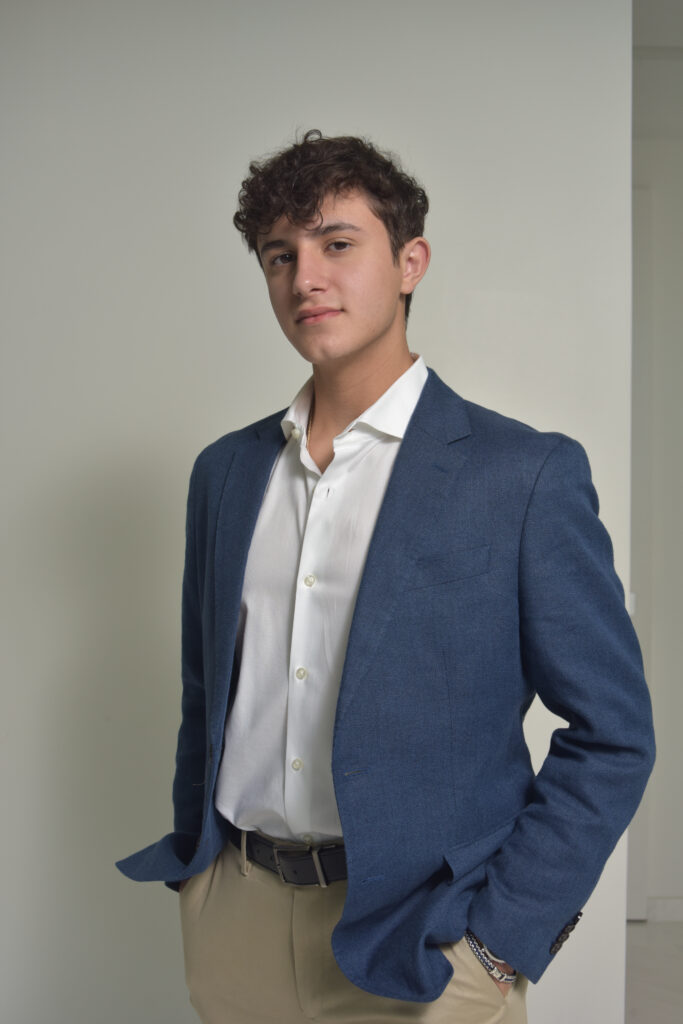
At Tec de Monterrey, my primary responsibility is to design a new Planetary Health course which analyzes the cyclic relationship between global food security and environmental sustainability. By grasping the social determinants of nutrition and human health in Mexico, and by understanding how climate change exacerbates global health inequities, undergraduates and graduates alike will learn how to create effective public undertakings in their respective fields to address environmental health crises across Mexico's diverse public policy landscape. I am grateful to serve the universityu2019s Global Health Initiative at the Graduate School of Government and Public Transformation here in Mexico City.
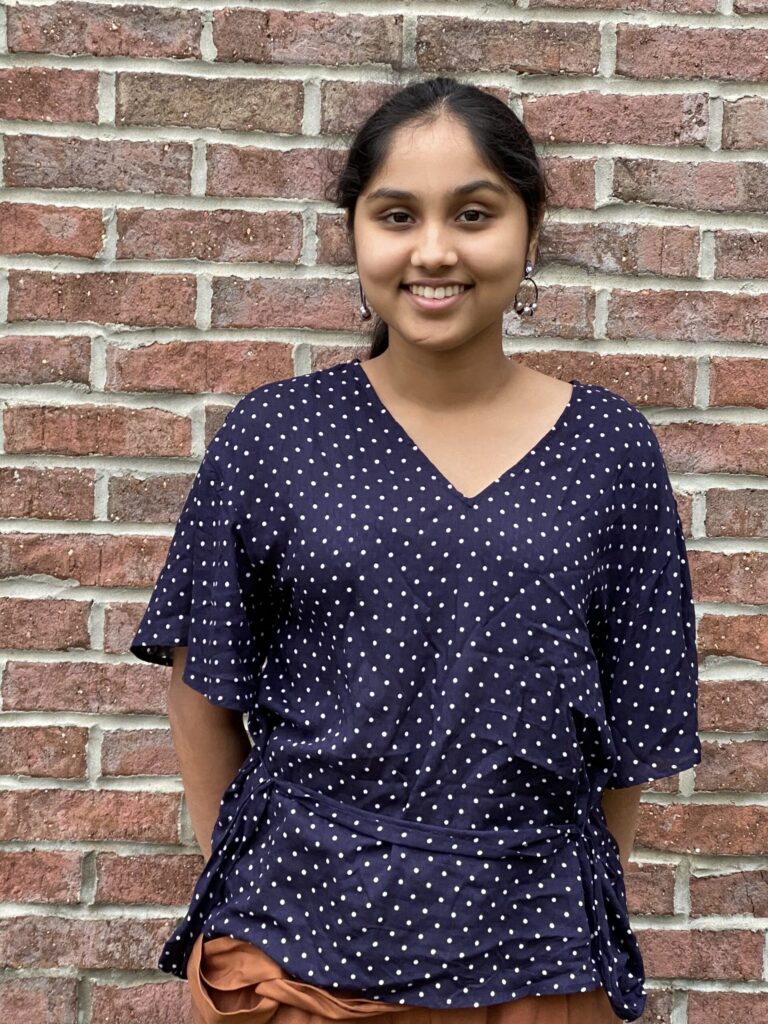
This summer I am working as a clinical research intern at the Botswana Harvard HIV/AIDS Partnership. I joined the Thabatse and Potlako study teams focused on improving cancer care nationwide. I have enjoyed learning more about cancer staging, epidemiology, and causal inference-based methods. My day-to-day involves extracting information from medical records, editing manuscripts, and working on an independent project focused on exploring how HIV infection may increase the risk of vulvar cancer. Some highlights have included visiting a village for a cancer outreach session, shadowing physicians at the Scottish Livingstone Hospital, and exploring Gaborone's unique food scene and nature.

This summer, I am working in the policy and advocacy division of Fenway Health. This work has given me a strong understanding of state governance and health policy at the state level. Specifically, we have been working to support the passage of the Healthy Youth Act, which would provide updates framework for Massachusetts public school sex education. My specific sector is in studying how to utilize social media to increase engagement and public support for the Healthy Youth Act. My work this summer will culminate with a social media implementation guide for Fenway Health.
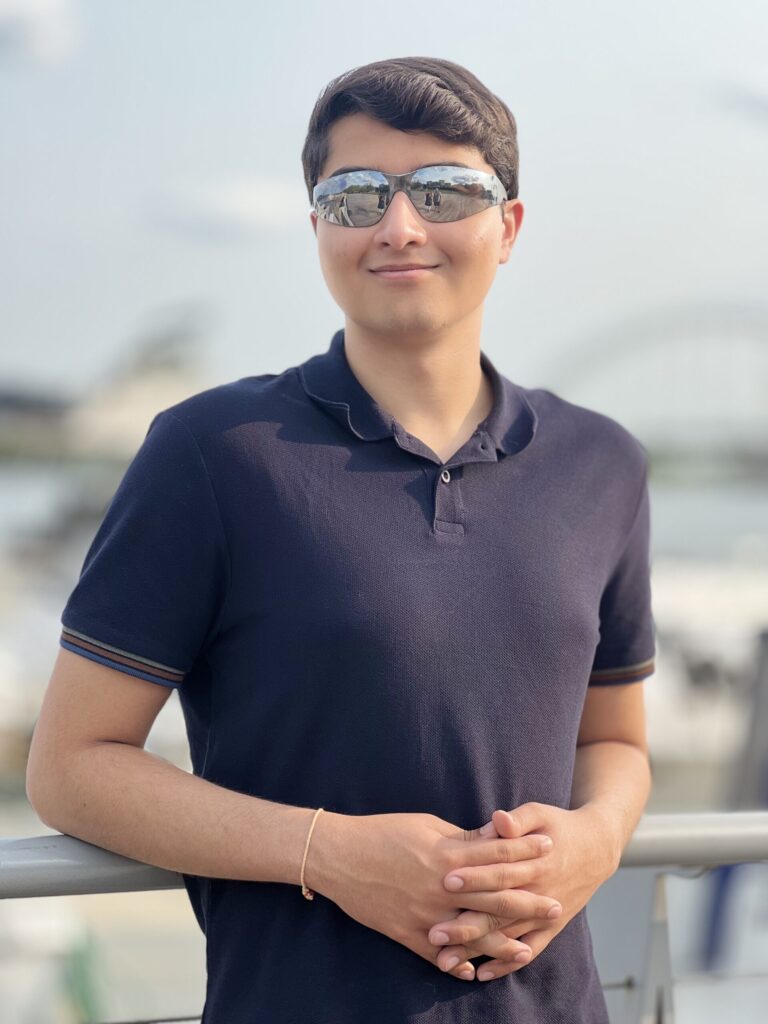
I'm working at the CDC this summer on a project related to mobilizing resources and improving public-private partnerships for a global fund that works to support pandemic preparedness. Along the way, I've gotten to talk to high-level staff from the White House, State Department, and Treasury Department, and it's truly been a great time. I'm really thankful to HGHI and CDC for this opportunity.
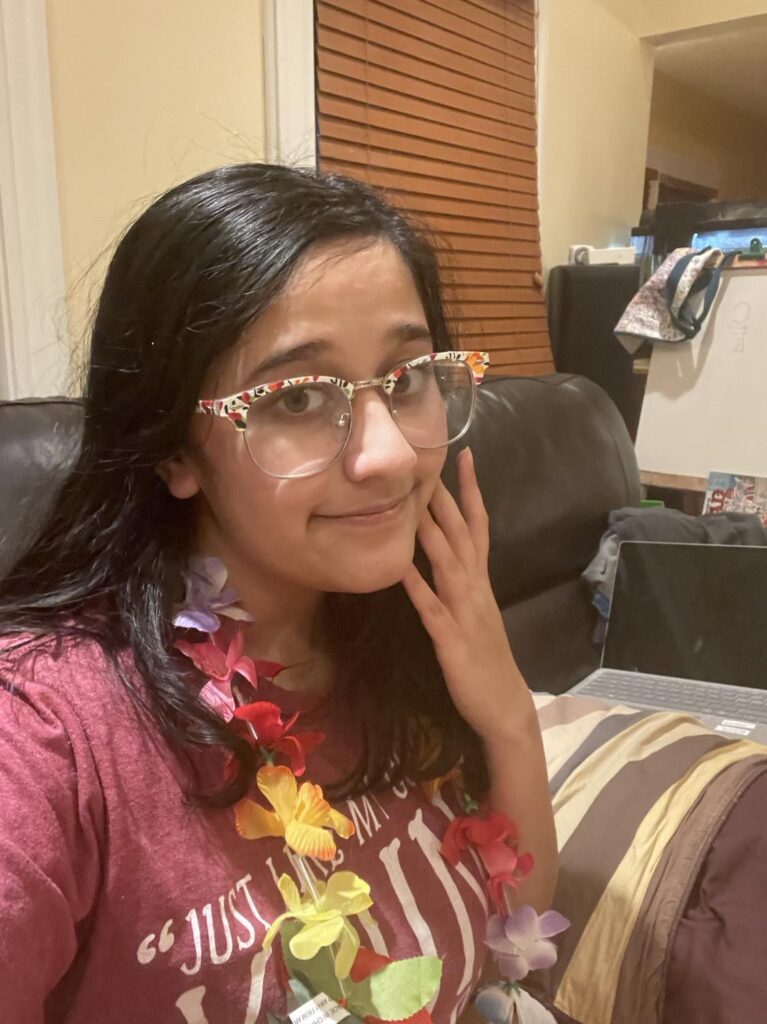
This summer, I have been working on the Measurement, Learning, and Evaluation team at Gavi, the Vaccine Alliance. Through working at Gavi, I have had the opportunity to meet and collaborate with diverse players in global health on salient issues. For instance, Iu2019ve been working with the World Health Organization on mainstreaming gender-specific concerns into Gavi evaluation procedures, and Ipsos on evaluations of our Zero Dose initiative. Compared to designing public health initiatives, evaluating them is especially inspiring: I got to quantify our organizationu2019s impact, propose KPIs to evaluate future impacts, and research novel solutions to program implementation barriers.
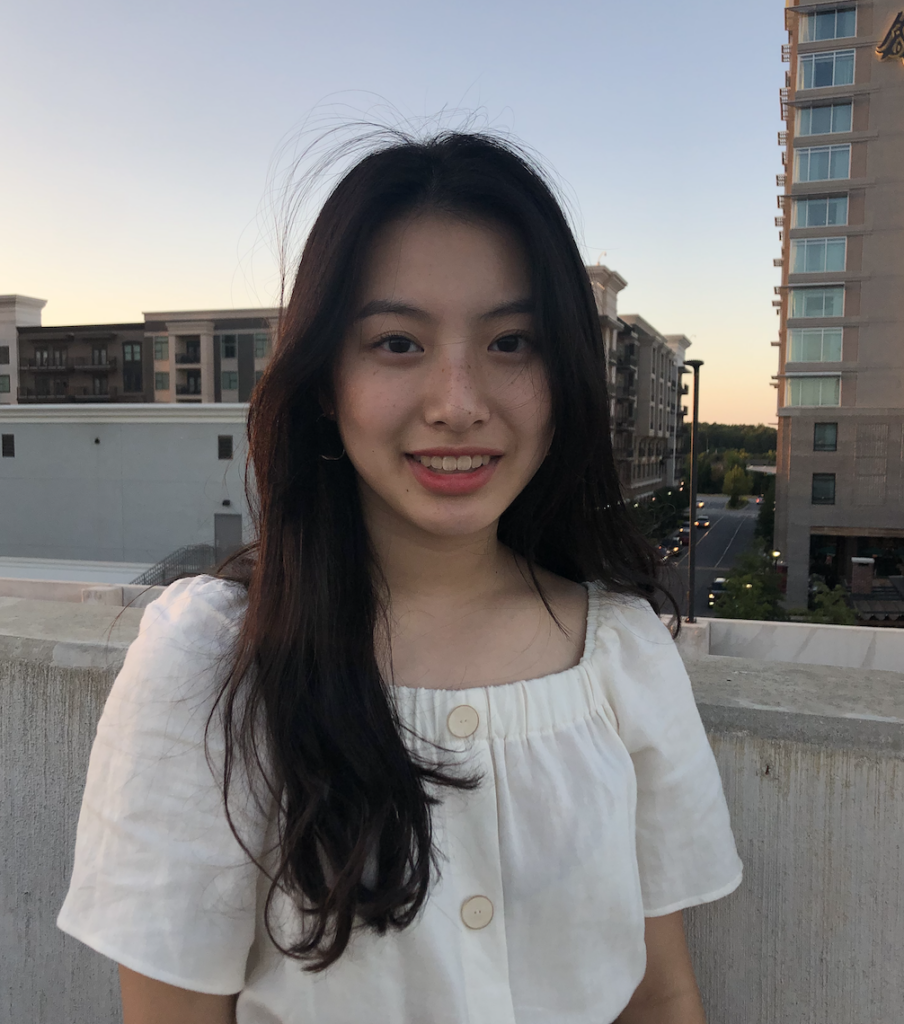
This summer, I am working at Village Health Works, a non-profit based in Burundi, Africa. As an intern for the Procurement and Supply Chain Department, I have analyzed procurement data, conducted operational bidding analysis, managed procurement processes using Precoro, and solved supply chain issues by cooperating with suppliers and internal members. Since the Procurement and Supply Chain Department is needed by all sectors of VHW, I have had the opportunity to collaborate with different sides of VHW. From supporting the opening of the Womenu2019s Health Pavillion to helping with the accreditation of Kigutu International Academy, I have gained firsthand experience of VHWu2019s mission to provide compassionate and quality healthcare and education in an empowering way.
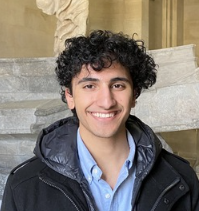
I have been fortunate to participate in an internship where I have gained invaluable experience in the field of disability claims and health care advocacy. My work has involved representing individuals with pending disability claims at the Social Security Office of Hearing Operations and Review, as well as advocating for clients facing denial or termination of health care coverage by the Office of Medicaid. I have conducted client interviews, developed records for administrative hearings, and even appeared at some hearings. Additionally, I have worked on access to health care issues, assisted uninsured individuals in accessing public health care programs, and contributed to the implementation of the Affordable Care Act in Massachusetts. It has been a remarkable opportunity for me to learn more about the intersections between health and science inequities with policy, areas that offer numerous ethical and legal implications that I hope to explore further.
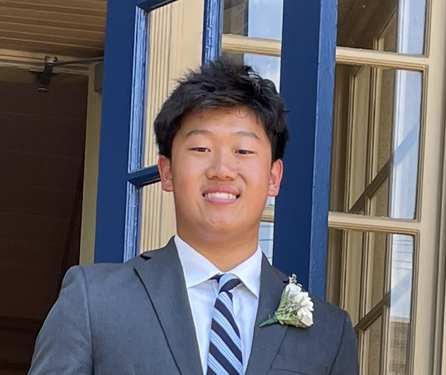
This summer, I interned as a student researcher at the Rubin Lab at the Harvard T.H. Chan School of Public Health, working on a project to understand the genes essential for drug resistance in Mycobacterium abscessus, an extremely drug-resistant bacteria distantly related to Tuberculosis. My responsibilities included writing protocols for experiments, running the experiments, and analyzing the data as the project is mainly meant to be student-driven. Throughout the internship, I was also able to meet and interact with the wonderful people in the lab through conferences, socials, and surprise birthday celebrations. I am deeply grateful for both the Rubin Lab and HGHI to have had this experience this summer.
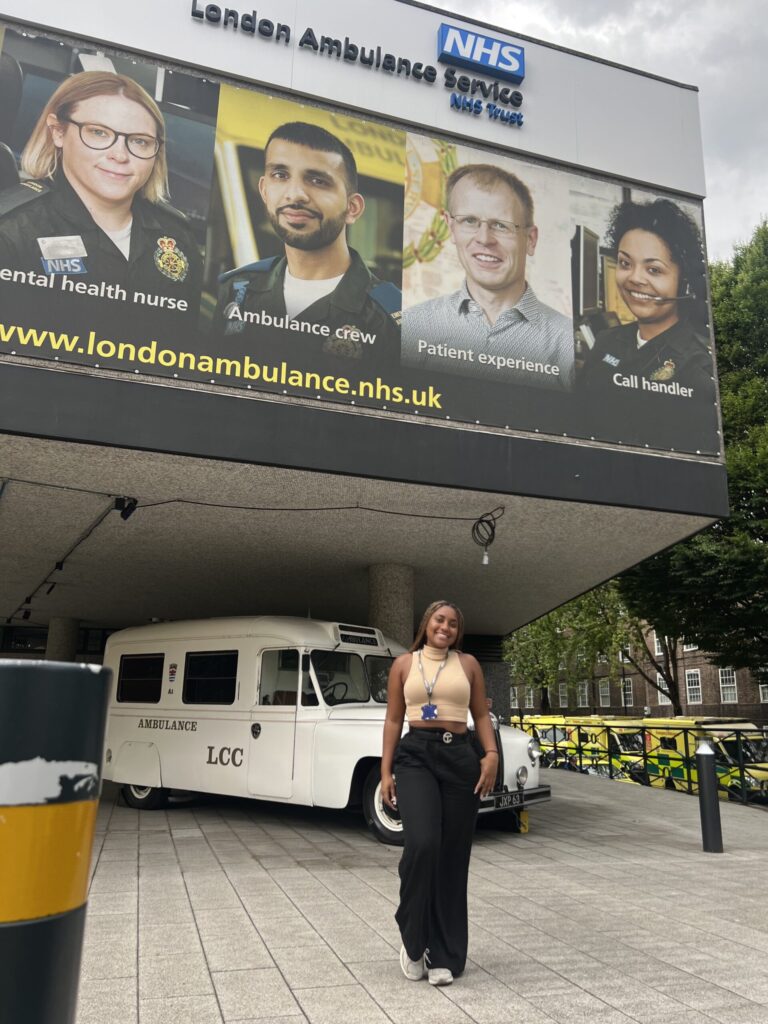
This summer, I am working at NHS England as a strategy analyst. I am working on the medium-term strategy, which as internal facing document that sets goals and plans of action that address the NHS's most pressing healthcare challenges. As an intern, I am focusing on intermediate care and how the NHS can continue to move care out of hospitals to reduce bed occupancy, reduce hospital admissions and readmission rates, and improve discharge flow. My work includes conducting literature reviews, participating in problem-solving meetings, and compiling information into a final slides deck. Moreover, I have a very extensive engagement diary that has allowed me to meet people working in various departments across the NHS and hear about the work they are doing. These projects have been incredibly enriching and I am grateful for the opportunity to work at the NHS over the summer!
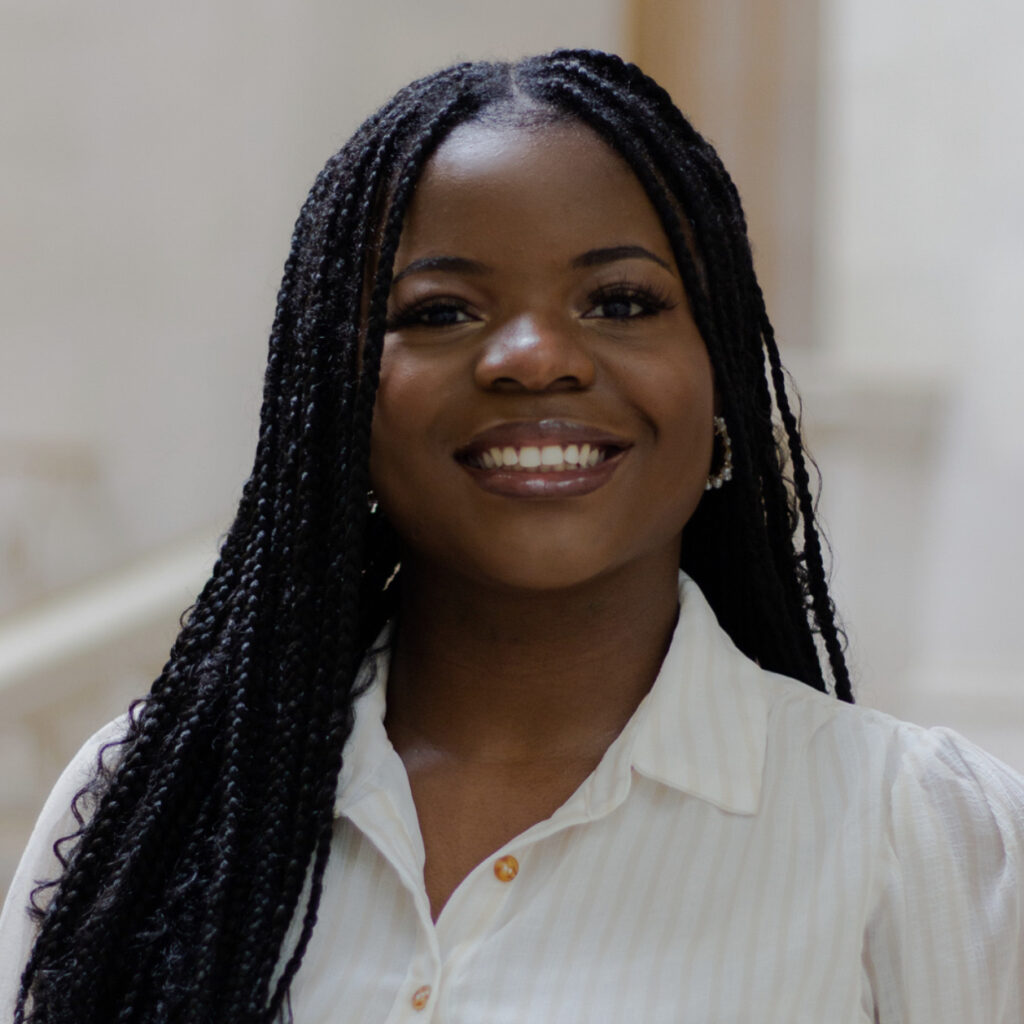
It has been the greatest honor to be an intern at the University of Global Health Equity (UGHE), a Partners in Health medical institution pioneering new ways in health equity and education in the heart of underserved communities. This summer, I have contributed to new curriculum projects with the goal of transitioning the medical and masters' programs to a platform that supports competency-based learning. I am primarily responsible for mapping curriculum content and preparing course frameworks for Elentra, the education platform UGHE intends to pilot. I also have the freedom to participate in other related projects like translating medical terminology into Kinyarwanda for student use and development. My work here has greatly exposed me to several invaluable opportunities in addition to incredible staff, students, and community members. I could not have asked for a more enriching experience this summer!
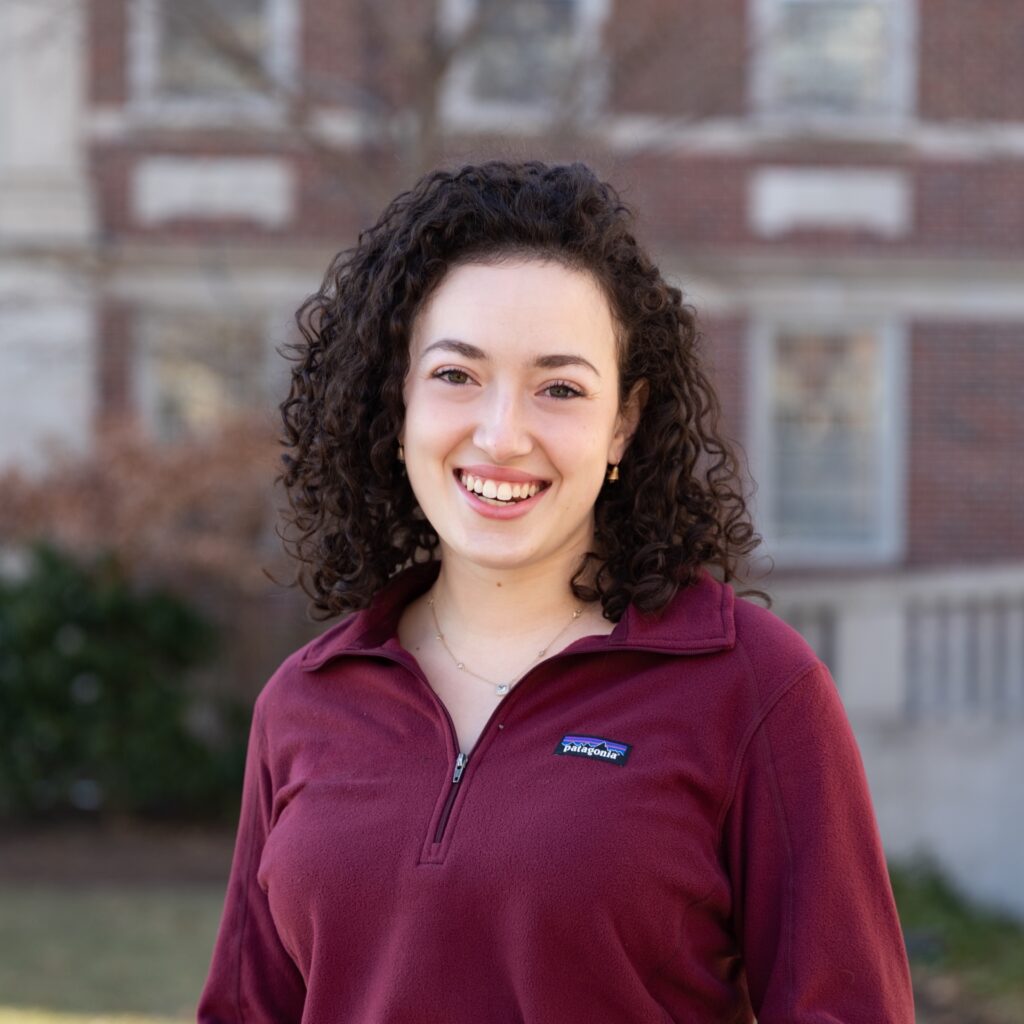
This summer, I am working with the International Quality Improvement Collaborative at Boston Children's Hospital. The mission of IQIC is to help improve outcomes of procedures for children with congenital heart disease at various partner sites globally, providing these hospitals with valuable insights regarding what may be leading to complications. So far, I have participated in meetings with partner hospitals around the world as well as internal team decision-making calls, helped to organize information for our data audits, reviewed literature for a new AI project, and begun to put together a new database to manage our contacts. I am so grateful to have the opportunity to learn from and work with such a terrific and impactful team.
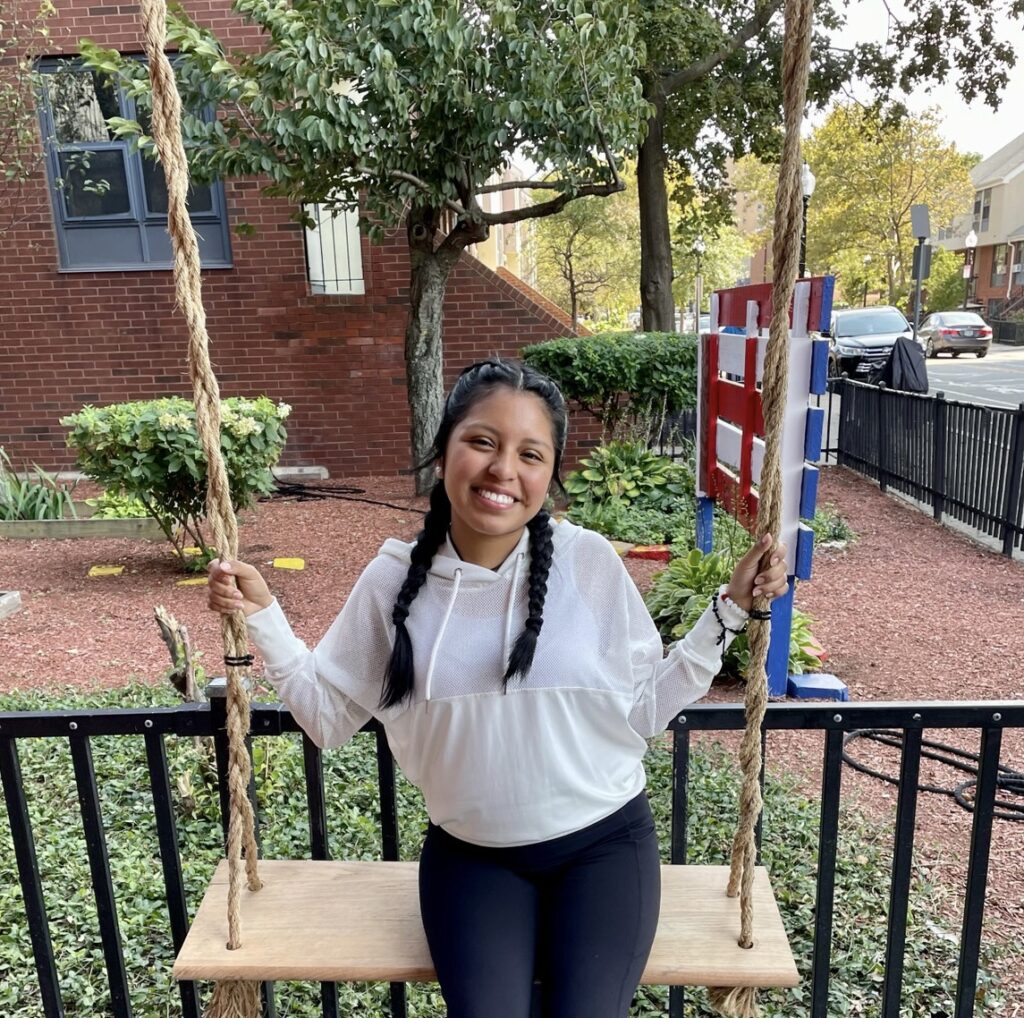
This summer, as a Research Assistant at the Mental Health for All Lab on the EMPOWER Project, my work has been centered around translating mental health service training into Spanish. The ultimate goal is to develop a digital platform that enables non-specialist health workers to provide effective, brief psychological treatments. I am passionate about this project because of its dedication to bridging gaps for marginalized communities. By culturally adapting the material, I know it will help destigmatize mental health in the Latino community. Additionally, I have been involved in coding and analyzing focus group sessions from a pilot study to gain qualitative insights. I am honored to contribute to this meaningful and impactful research.
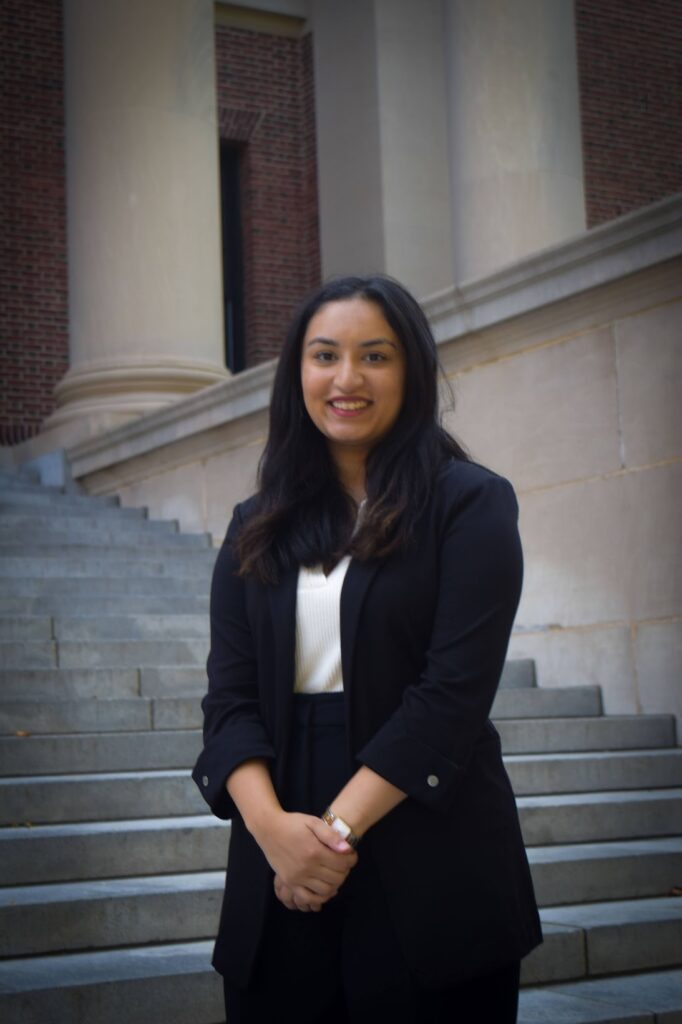
This summer, I have had the pleasure of working as a research intern at the University of Chicago Urban Health Labs for multiple projects. The Lab seeks to evaluate and improve public health interventions to ultimately help cities achieve health equity. As an intern, I have helped conduct literature reviews, edit grant proposals and write reports for the Critical Time Intervention Multisite Evaluation (CTIME), a model which helps transition homeless individuals to stable housing, and the Crisis Assistance Response and Engagement Evaluation (CARE) which seeks to reframe the city's 911 response throughout the crisis response system. I also work on the Inform988 project, which works to strengthen the relationship between the suicide and crisis lifeline (988) and the emergency number (911).
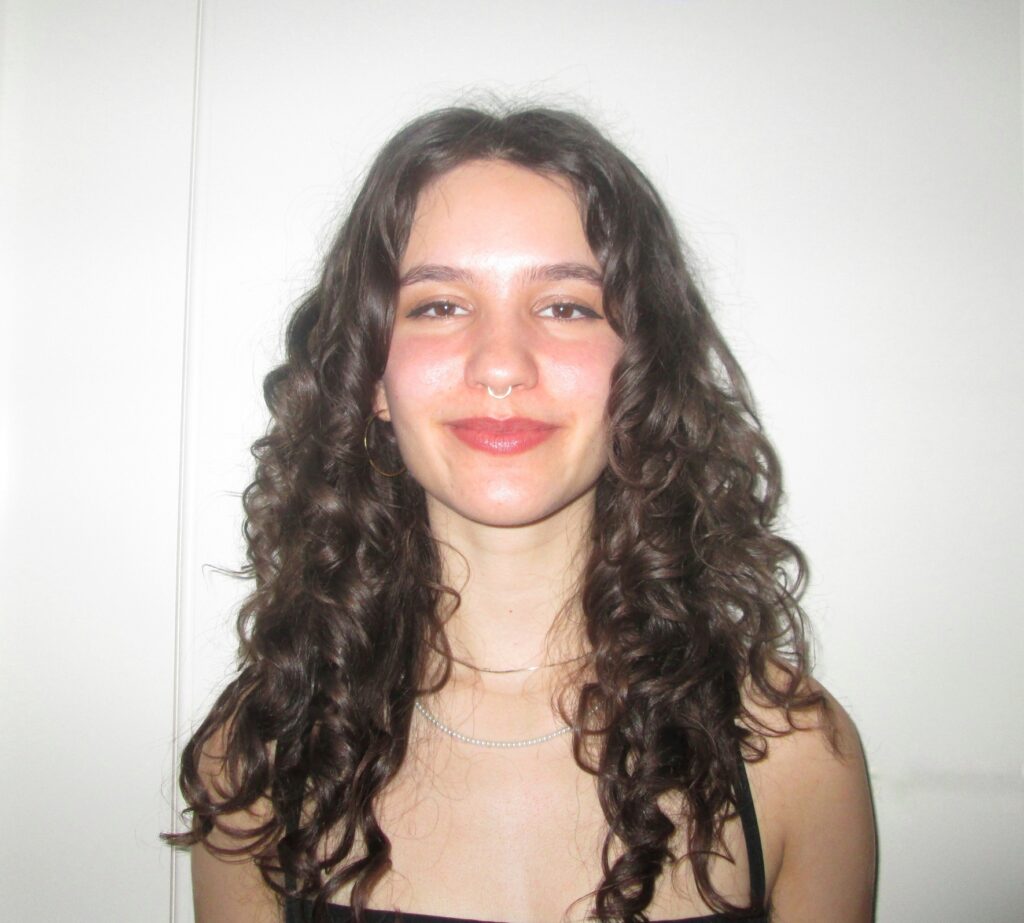
This summer, Iu2019m working in the research laboratory at the Botswana Harvard AIDS Institute Partnership in Gaborone. My project has focused on lenacapavir, the first drug in a new class of antiretrovirals that has been remarkably effective even for individuals resistant to other therapies. Iu2019m using everything from RNA extraction and sequencing to retrospective analysis to understand the prevalence of lenacapavir-resistant mutations in the hopes that the drug will be effective against HIV-1C in Botswana!
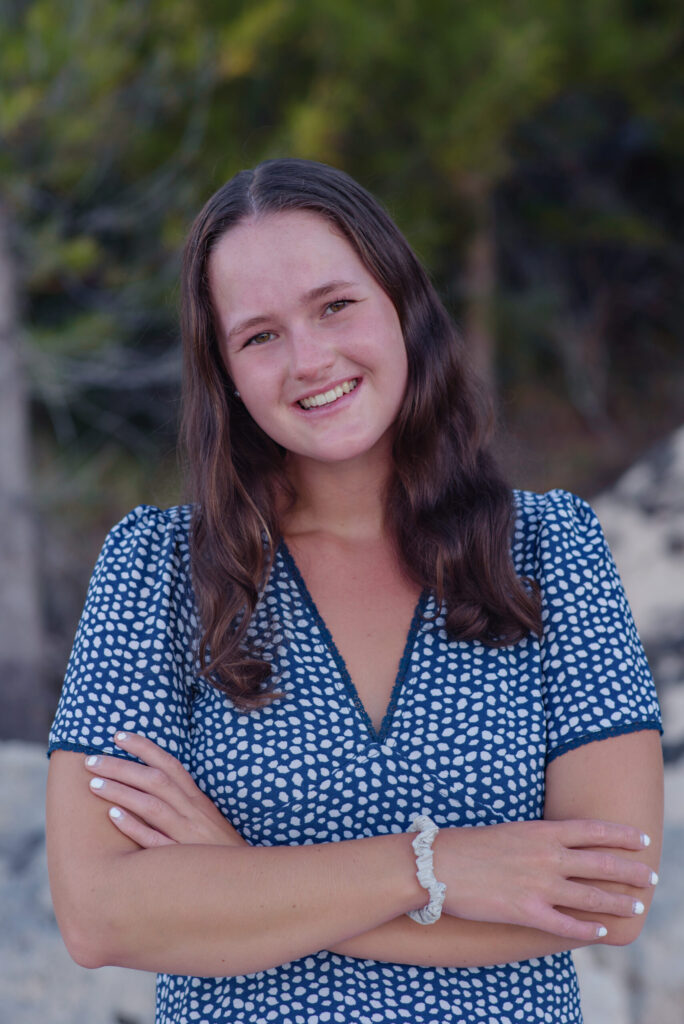
This summer, I am working with a research team based out of Massachusetts General Brigham Hospital and we are studying the occurrence of postoperative complications experienced by general surgery patients as reported by physicians and other health care providers. I am acting as the lead research intern on this team and am helping to organize the steps of our literature review and data analysis while also contributing to this work myself. This work has been extremely fulfilling as it has allowed me to discover a new area of public health, further my own research skills through the independent nature of my work, and ask my own research questions to be explored as future areas of interest!
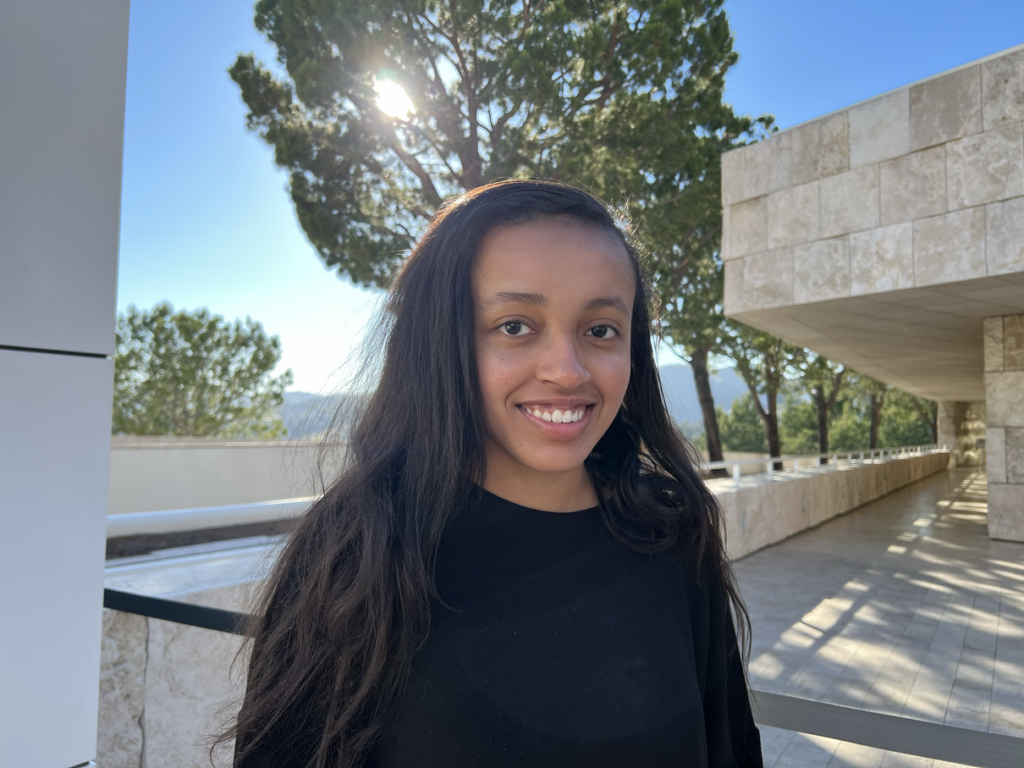
This summer, I had the incredible opportunity to intern at Homeless Healthcare Los Angeles (HHCLA), a nonprofit organization dedicated to serving those experiencing homelessness and substance use issues in Los Angeles, California. My focus was on the substance use treatment program, working alongside psychiatrists, LCSW therapists, substance use counselors, and occupational therapists. Together, we assisted community members who were seeking safe spaces, harm reduction supplies, support groups, and individual counseling, particularly those in the medication-assisted treatment program. I actively participated in client-facing duties, facilitating support groups and assisting with medication distribution.

This summer, I have the privilege of working on the NAMASTE project at Sangath, as a part of their Community Engagement and Involvement Workstream. As an intern, I am working on planning, executing, and writing a scoping review on the best practices to engage stakeholders with lived experiences of autism into community engagement programmes in low- and middle-income countries. This work will allow me to contribute to manuscripts on the process adapted by our NAMASTE workstream in developing the public engagement toolkit and the best strategies for conducting qualitative and design research in South Asia. I am grateful to Sangath and HGHI for this opportunity to gain new global health experience and relevant research skills!
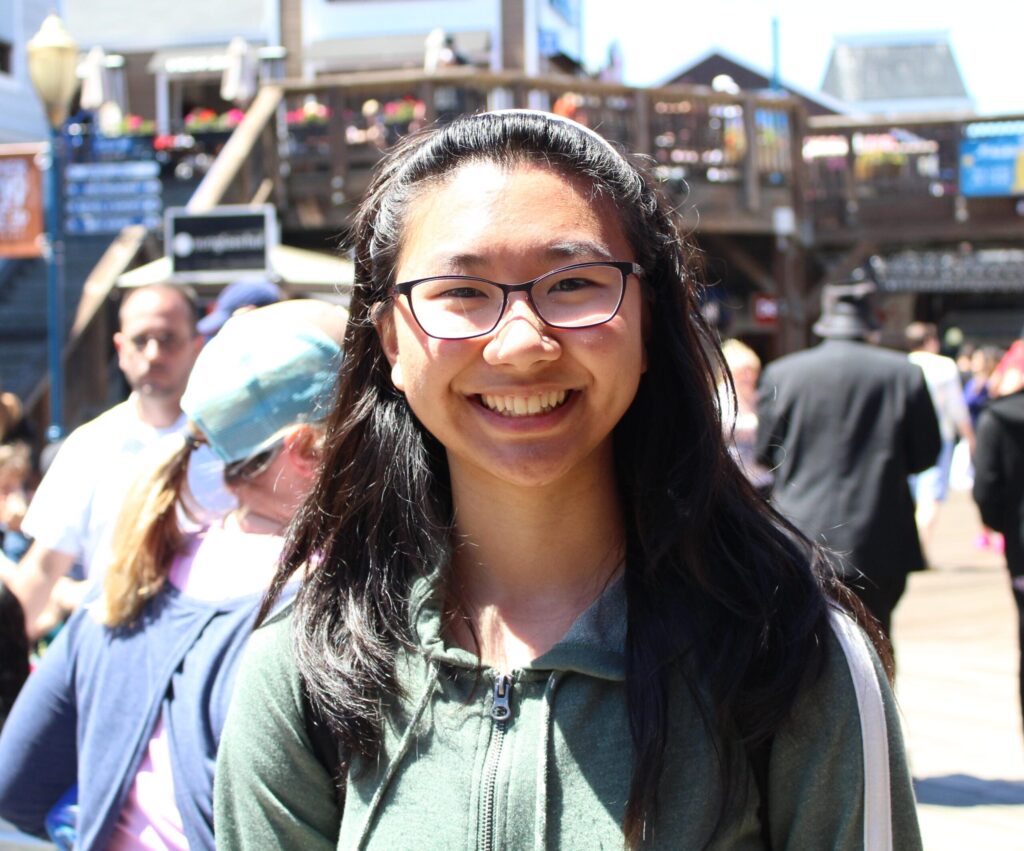
This summer, I am interning at the Elder, Health, and Disability Unit at Greater Boston Legal Services, a nonprofit that aims to advocate for and provide free legal services for underserved populations in the Boston area. As an intern, I have had the opportunity to work one-on-one with clients and gain valuable insights into the legal challenges faced by older adults and individuals with disabilities. The team has been incredibly supportive, and I am excited to continue learning and doing impactful work with everyone for the rest of the summer.n
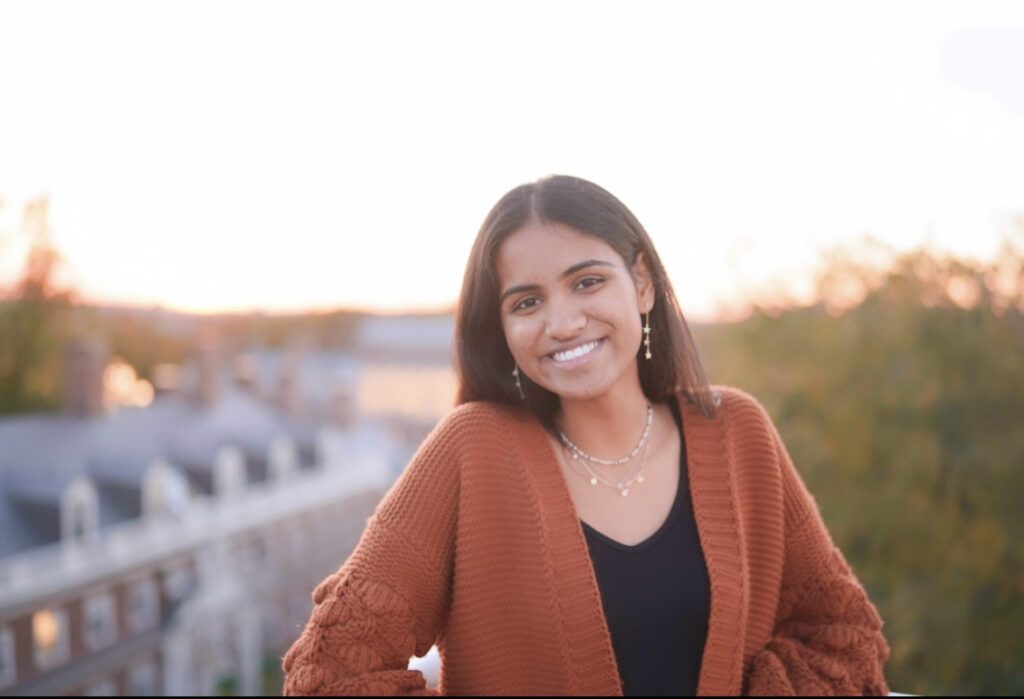
This summer, I've had the wonderful opportunity to work with the University of Global Health Equity (UGHE) on various projects, meet inspiring people, and make meaningful connections! I've gotten to meet students who've taught me about Rwandan culture, doctors who've taken me to the local rural hospital, and faculty who never fail to show me the value of hard work and passion. I've specifically been working with partnerships of the university, and having the ability to talk with the partners themselves has taught me a lot about the foundations of global health; I hope to continue similar work in the future as well!
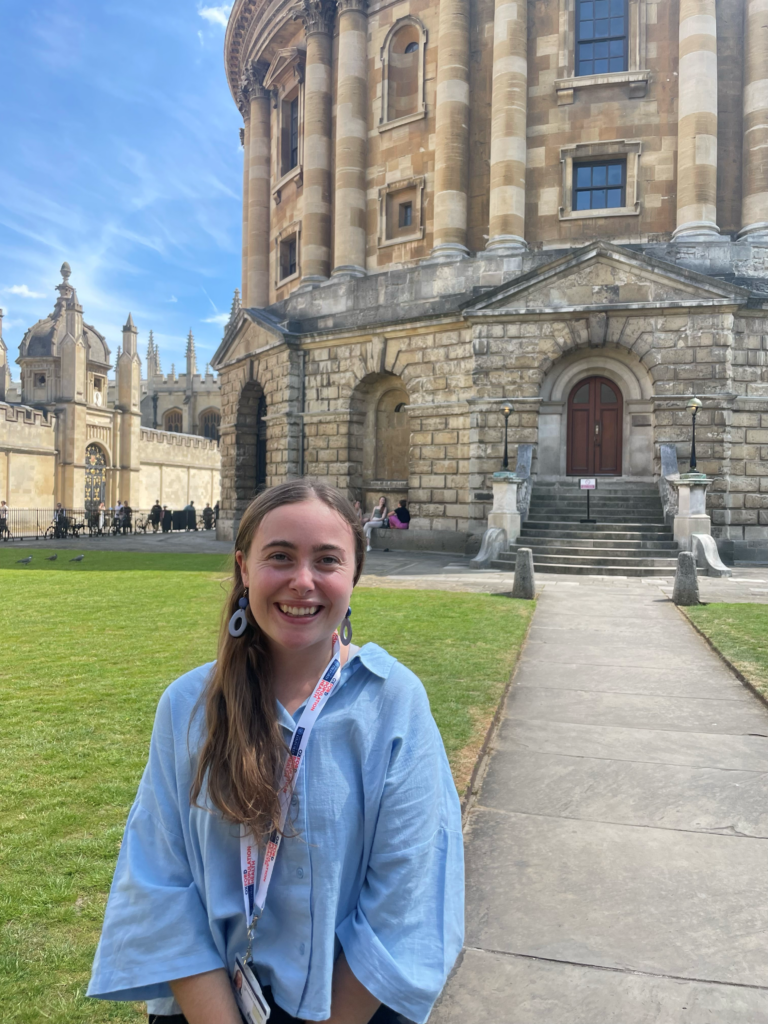
This summer I am conducting research at the University of Oxfordu2019s Big Data Institute with the OxWearables Lab run by Professor Aiden Doherty. This lab is a research group in the Nuffield Department of Population Health where Iu2019ve had the amazing privilege of being surrounded by some of the world's top population health scientists, epidemiologists, and machine learning specialists. In our lab, we use big population health data sets from wearable medical devices, such as those in the UK Biobank, and use epidemiological and machine-learned models to understand this data and make conclusions about population health. At Harvard, I study Mathematics and this opportunity funded by the HGHI has been profoundly inspiring on my journey to hopefully pursue an MD-PhD with doctoral studies in biostatistics or epidemiology.
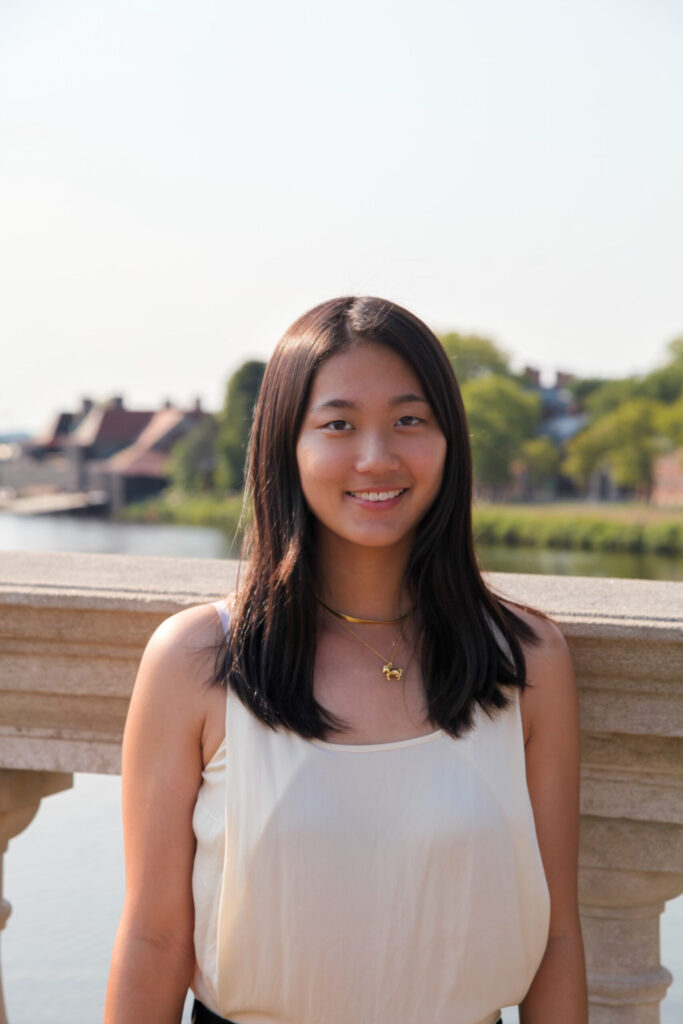
I've spent my summer in London as an intern at the National Academy for Social Prescribing, working with Dr. Bogdan Chiva Giurca as part of the Global team. I've had the wonderful opportunity to lead the development of an international training offering for social prescribing link workers and to work on a few publications related to digital health startups and overprescribing as well as misconceptions about the link worker role. I've also had some amazing experiences outside of the Southbank Centre office. In particular, I really enjoyed meeting some of the "stars" of social prescribing (who I've read about online/in the news) at a "Community Wellbeing, Health Inequalities and the role of Social Prescribing" workshop at UCL, learning more about Parliament while joining a coworker who was speaking at a House of Lords committee session, and volunteering at the 2023 Integrative and Personalised Medicine Congress.
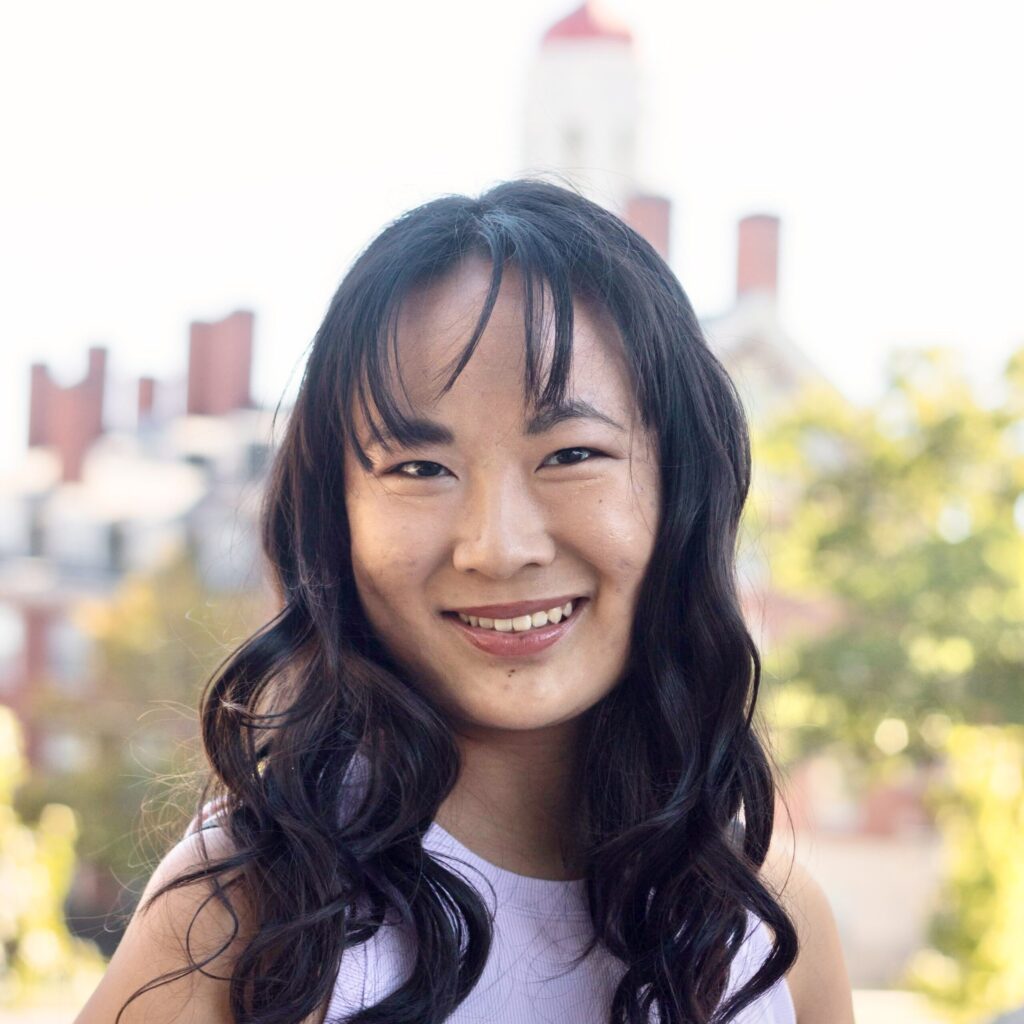
I am conducting research at the Translational Data Science Center for a Learning Health System (CELEHS) at Harvard Medical School and the Harvard T.H. Chan School of Public Health. CELEHS, led by Dr. Tianxi Cai, focuses on developing analytical and predictive tools that leverage biomedical data to improve the efficiency and accuracy of healthcare delivery. In line with this mission, my research project, mentored by Dr. Chuan Hong, aims to develop a machine learning method for harmonizing variables across clinical cohort studies. Effective variable harmonization paves the way for resource-efficient multi-cohort studies with increased statistical power and diversity in study population.
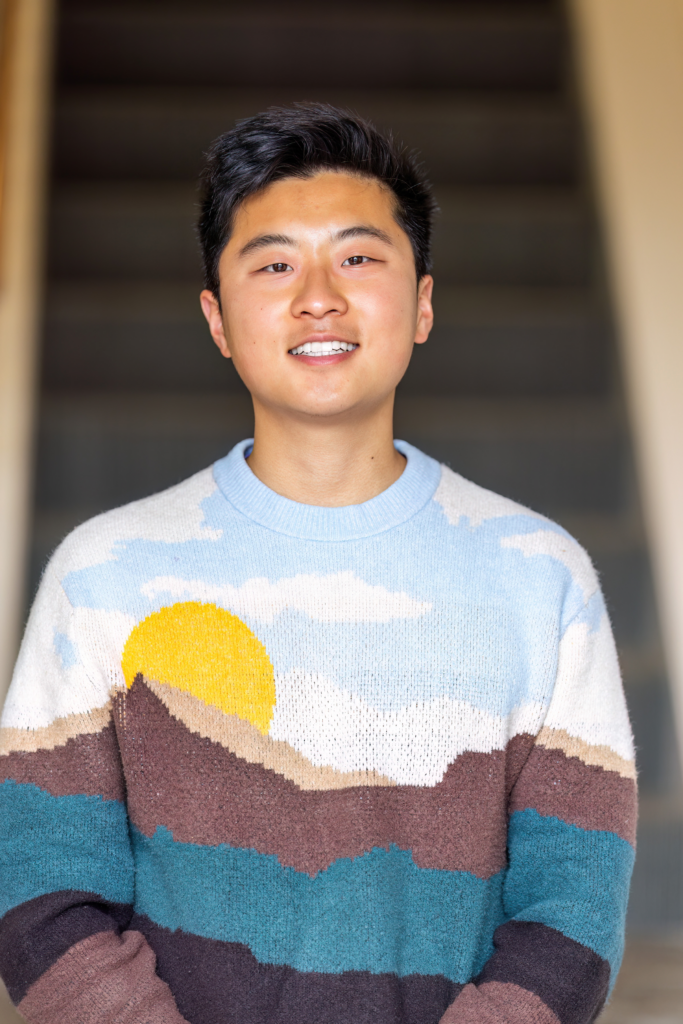
In Barcelona this summer, I am researching the intersection of climate change psychology and health psychology. As a part of a team working on a greater project, I am conducting a literature review on the psychology of engagement in pro-environmental behavior. The ultimate goal is to understand whether we can better frame climate change by conveying its accompanying health impacts to the general public. Hence, understanding the psychology of climate change engagement is critical! It is particularly exciting for me to be working on such an interdisciplinary topic!
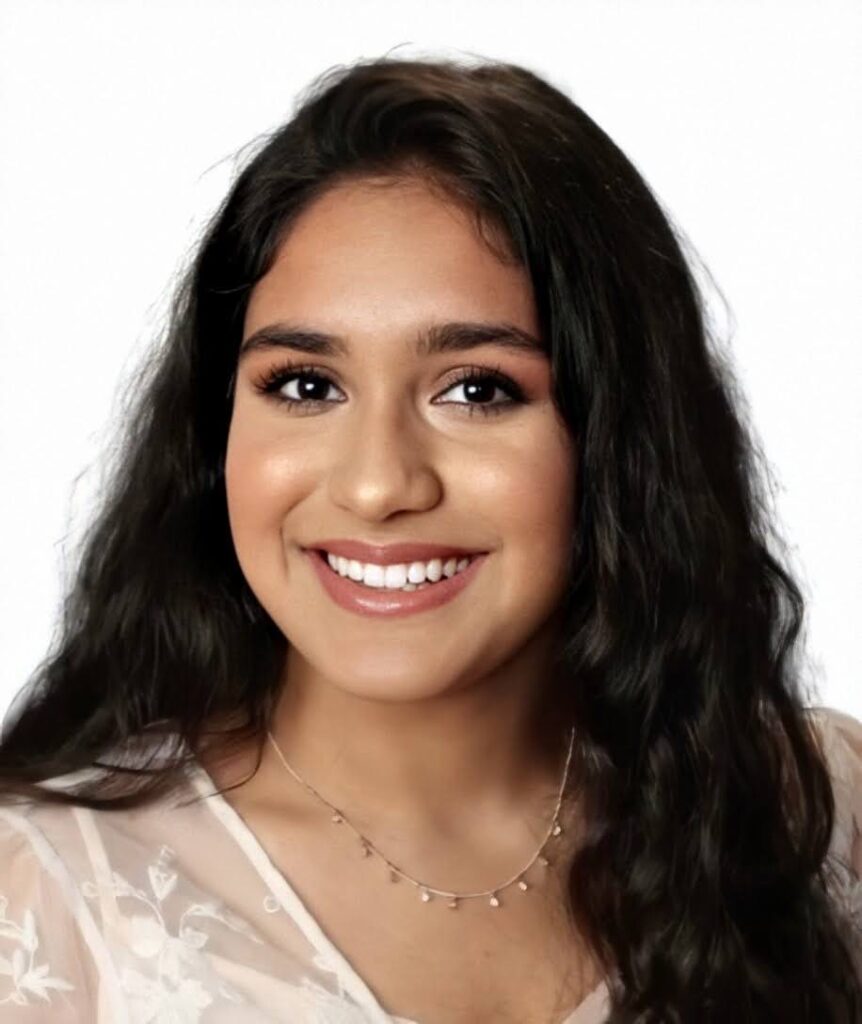
This summer, I've had the wonderful opportunity of working with Stop TB Partnership, hosted by UNOPS in Geneva, Switzerland. I am working closely with the Digital Health Team. The DHT works diligently on the introducing New Tools Project (iNTP), a collaboration between Stop TB Partnership and the United States Agency for International Development (USAID) to introduce the latest technological innovations in TB diagnosis and treatments to high burden countries. There is large emphasis on ultra portable digital X-ray systems and artificial intelligence powered computer aided software to screen for TB. It has been wonderful assisting with this work and aiding in Stop TB's mission to end TB by 2030. This internship has allowed me to see the intersection of topics I care very deeply about: advocacy, human rights, and health.
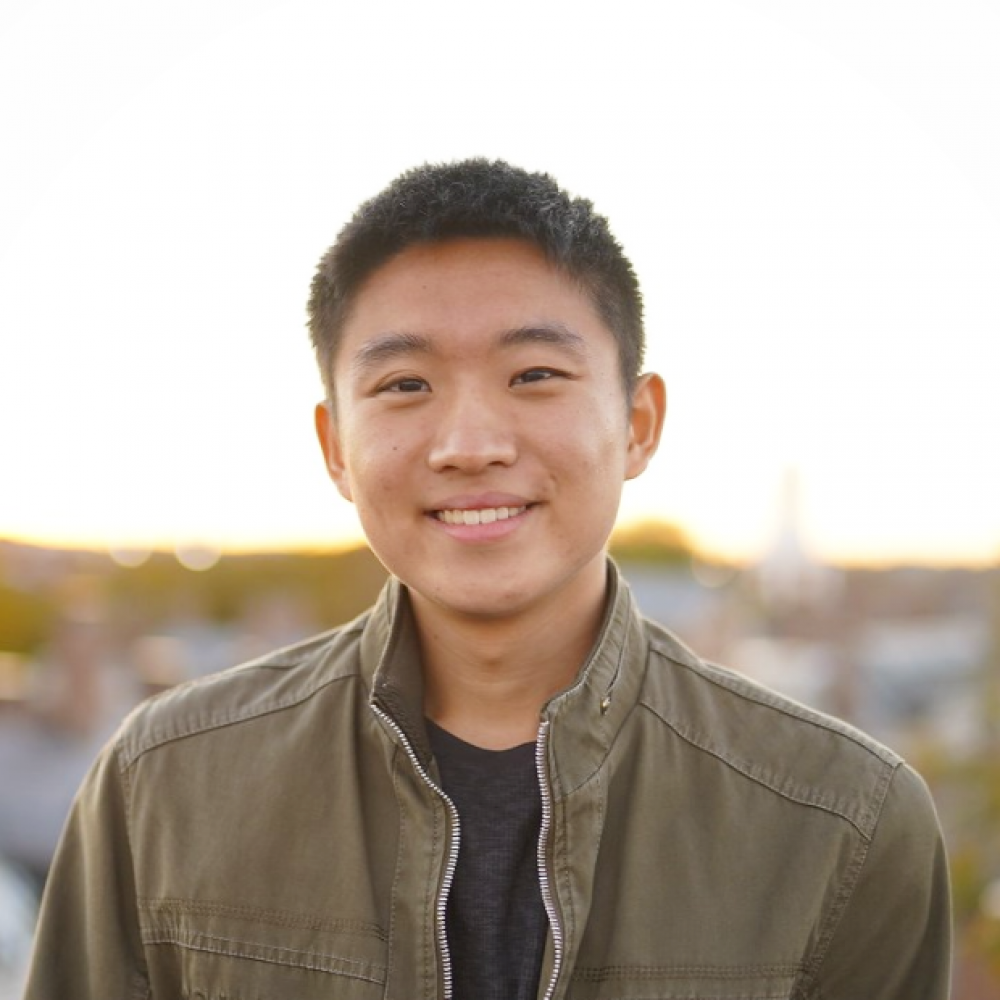
This summer, I am working at the University of Chicago’s Urban Health Lab, where I am part of the Reducing Opioid Mortality in Illinois (ROMI) team. ROMI is a randomized controlled trial concerning criminal/legal re-entry for people exiting jails and prisons in Illinois, and I’ve had the chance to see the implementation and evaluation of the study from recruitment to interviews with staff from our partners. I am also contributing to the quantitative analysis aspect of the ROMI trials, and when I’m not doing that, I am helping set up the background research for upcoming projects. I’m deeply appreciative of the chance to be a part of this vital effort to improve health outcomes for vulnerable members of society with evidence-based policy!


